Veterinarian California



























August 25, 2021 | 1.5 CEUs
August 31, 2021 | 1.5 CEUs
For more information, see page 28.
Sponsored by
This seminar is complimentary to all veterinary professionals.
California Licensing Curriculum (CLC)
September 12-14, 2021 | 27 CEUs
For more information, see page 28.
CVMA Fall Seminar in Lake Tahoe
October 8-10, 2021 | 12 CEUs for veterinarians and 8 CEUs for technicians and CVMA CVAs.
For more information, see page 14.
Sponsored by
PREFERRED EMPLOYERS Insurance
CAVMRC Disaster Response Training in Santa Rosa
November 7, 2021 | 6 CEUs
For more information, see page 37.
Sexual Harassment Prevention Education and Training
November 3, 2021 | 1 CEU for non-supervisors
November 9, 2021 | 2 CEUs for supervisors
For more information, see page 28.
Registration for all CVMA events can be made online by logging onto cvma.net or by calling 800.655.2862.
CVMA-A liated Programs
California Veterinarian (ISSN 00081612) is published bi-monthly by the California Veterinary Medical Association, e-mail: sta @cvma.net. California Veterinarian is an o cial publication of the California Veterinary Medical Association. Annual subscription rates to non-members: $50 U.S., $60 Canada/Mexico, $70 overseas. Price per single copy: $10 current year, $12 back issues. Periodicals postage paid at Sacramento, CA and at additional mailing o ces. POSTMASTER: Send address changes to California Veterinarian, 1400 River Park Dr., Suite 100, Sacramento, CA 95815-4505. Phone: 800.655.2862
The CVMA and California Veterinarian assume no responsibility for material contained in articles and advertisements published, nor does publication necessarily constitute endorsement by them. ©2021 CVMA
Publisher Dan Baxter
Managing Editor Kristen Calderon
Editor Taryn DeOilers
Publication Designer Howard Ste ens
Classified Advertising
Board of Governors
President
Laura Phillips
Dr. Elisabeth Klapstein
President-Elect Dr. Keith Rode
Member-at-Large Dr. Michael Karle
Members
Dr. Peter Bowie
Dr. Patrick Connolly
Dr. Larry Correia
Dr. Jennifer Hawkins
Dr. Adam Lauppe
Dr. Julia Lewis
Dr. Peter Mangold
Dr. Teresa Morishita
Dr. Peter Vogel
Dr. James White
Dr. Jodi Woods
Dr. Dirk Yelinek
Student Representatives
University of California, Davis
Alison Pankowski
Western University Katelyn DeVore
Treasurer Dr. George Bishop
Chair, House of Delegates Dr. Brent Wooden
CVMA Staff
Executive Director Dan Baxter
Assistant Executive Director Della Yee
Director of Communications Kristen Calderon
Director of Finance Kathy Van Booven
Director of Regulatory A airs Dr. Grant Miller
Design and Marketing Manager Howard Ste ens
Membership and Student Services Laura Phillips
Manager
Publications Manager Taryn DeOilers
Accountant Bernice Evans
Communications Coordinator Nicole Campos
Finance Coordinator Sharmele Browne
Meetings and Events Coordinator Lily Briggs
Membership and CE Coordinator Jennifer Smith
Receptionist Mary Young
Display Advertising
Please contact Taryn DeOilers at 916.649.0599 ext. 16 or email tdeoilers@cvma.net.
You may have noticed a different type of article in the last edition of the California Veterinarian…different, at least, for the CVMA.








































When I came to the CVMA in September of last year, one of the things I wanted our association to do was to take on a larger role in the discussion of diversity, equity, and inclusion. I feel strongly that part of being the trusted voice of the California veterinary profession is to take a rmative steps to better represent all members of the profession and to do our best to ensure that nobody within the profession is made to feel unwelcome, excluded, or “othered” because of their belonging to a historically underrepresented group.
As it happens, our then-new President (and now immediate-past President) Dr. Dirk Yelinek had the same vision. On our very first phone call, I asked Dr. Yelinek if he had any specific “to do” items for his tenure as President. He listed three specific categories, all meaty and robust, with the first of those being to amplify the CVMA’s role in the conversation surrounding diversity, equity, and inclusion. I knew right then that Dr. Yelinek and I would be fast friends.
The next piece of the puzzle was the “how.” That is, how could the CVMA make a meaningful contribution to this dialogue? Some would (very credibly) argue that raising a concern and then doing nothing is worse than raising it in the first place, and the last thing that we wanted was to engage in a “box-checking” exercise that would simply allow us to organizationally say: “Yep, we’ve done a little thingy on DEI, too!”
To e ectuate the “how,” what followed our opening communications was an e ort by Dr. Yelinek and those of us here at the sta level to construct a series of o erings that would get the ball rolling towards something more fulsome and more permanent—perhaps even building towards a structured program on diversity and inclusion issues.






Well, while we cannot yet claim to have made it to the full-scale programmatic level, we have started down the path. The first step was taken by Dr. Yelinek himself: In the May/June edition of the California Veterinarian, you saw the “di erent type of article” referenced above—Dr. Yelinek’s personal account of his memories of Dr. Martin Luther King, Jr.’s visit to his hometown, and the impact that it had on his worldview. The piece also described the commitment that the CVMA is making to use its leadership role to address diversity and inclusion issues. To that end, and as Dr. Yelinek’s piece also mentioned, the CVMA has started to proactively put together content-based o erings on those issues.
Our first such o ering will consist of a continuing education seminar led by Western University’s Dr. Suzie Kovacs entitled “Diversity & Inclusion in the Veterinary Profession: Why It Matters.” That presentation—held in the evening of August 25 and at lunchtime on August 31 to accommodate schedules—will highlight historic and current trends in the veterinary profession, and emphasize why creating more diverse, inclusive veterinary teams is critical to the profession’s endurance and the people and patients it serves. Because we feel that this issue is so important, we are inviting both CVMA members and non-members to participate in these webinars free of charge. See page 28 for details.
In addition to Dr. Kovacs’ presentation, our Veterinary Leadership Forum in January of 2022 will focus on diversity, equity, and inclusion, and we also intend to do a series of articles in the California Veterinarian commencing later this year or early next year that addresses the issue from di erent vantage points. While we do not yet have a true “program” on diversity, equity, and inclusion, we are trying to make strides in the right direction. We will make an intentional commitment to considering diversity and inclusion in all of our operations, including leadership selection, sta hiring, association documents and databases (in which we are deleting personal pronouns like “he,” “she,” et cetera), and more. Rome wasn’t built in a day, but hopefully what we are putting together now and in the months and years to come will serve as a strong foundation for something—both a CVMA program and a philosophy within the veterinary community—that will stand the test of time.
Dan Baxter, Executive Director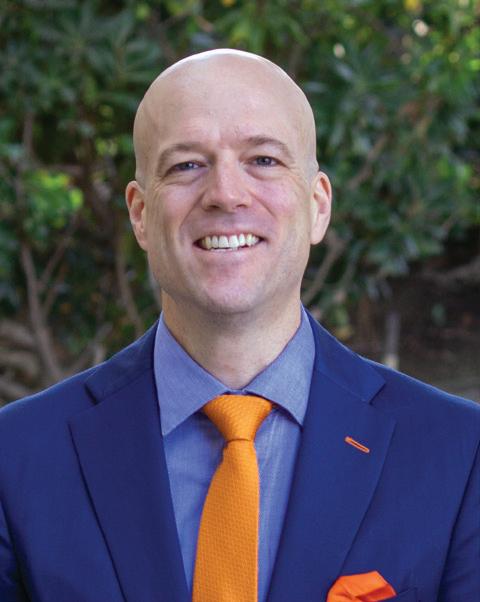
Iwould be careless to say that the pandemic had little to do with my education during part of my third and the entirety of my fourth year in veterinary school. It’s a story all too familiar: the virus turned our lives upside down and inside out. In the spring of 2020, we were pulled from our rotations and quickly adapted to the woes of online learning. While our school did an amazing job of putting together a Zoom curriculum, spotty WiFi connections and the stress of this new virus—later paired with an enormous social movement— hindered my personal ability to stay focused and calm. Not to mention, every one of my rotations was canceled,
so each month I scrambled to find hospitals that would take me. While I had to do quite a bit of traveling to gain clinical experience, I am pleased to say that I was able to work with amazing clinicians and sta who fostered my learning experience—I’d even consider a couple of these doctors to be my lifelong mentors.
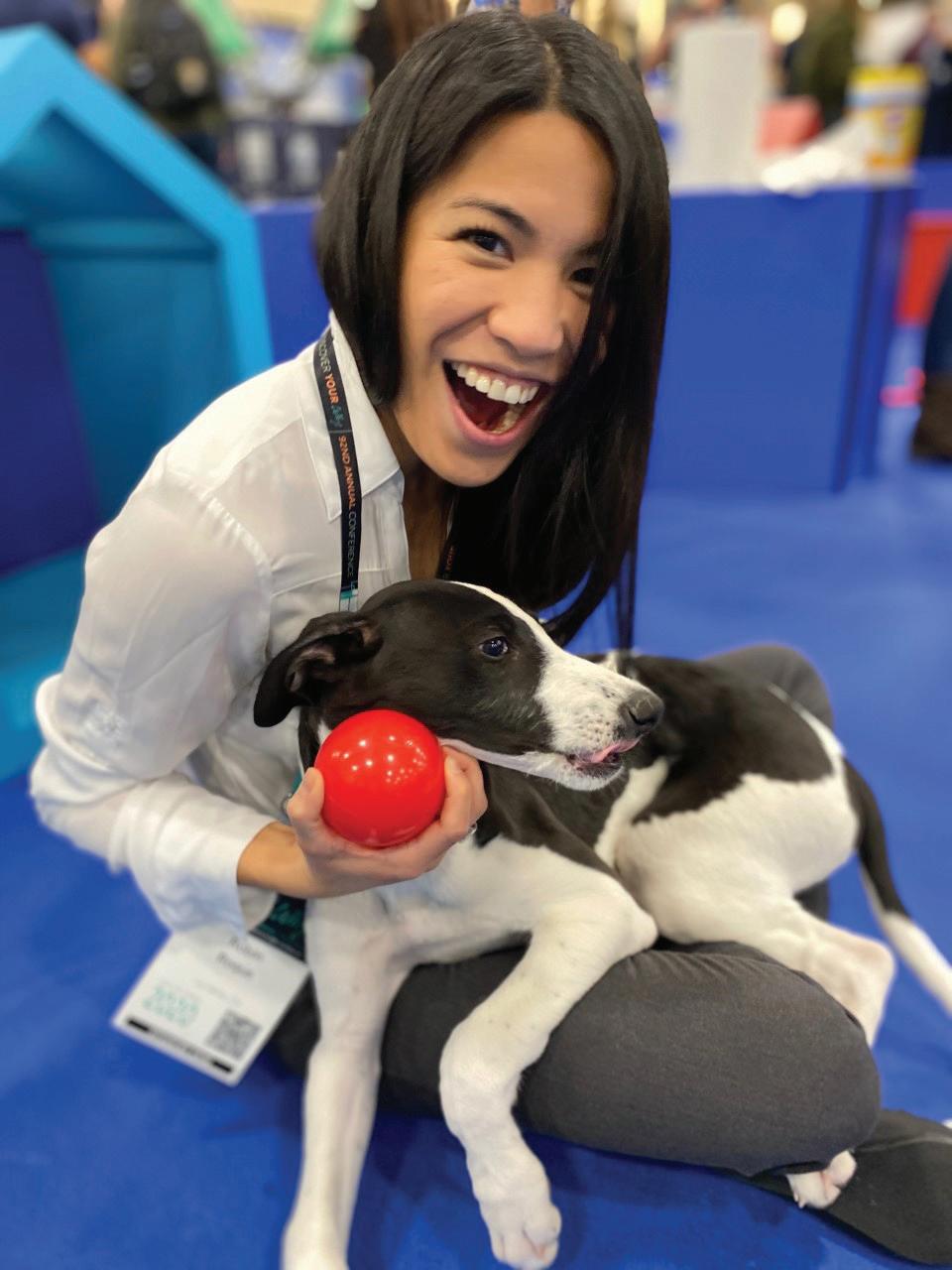
Now, this four-year rollercoaster has come to a stop. My beloved 2021 class and I graduated on May 20th. I passed the NAVLE, I passed the California State Boards, and I landed a job as a sta veterinarian at a general practice/urgent care. I am so excited, albeit a little nervous and scared, to begin this new chapter of my professional career. While my nerves are slightly frazzled, I take comfort in the words that seasoned doctors and new graduates alike have said to me, such as, “Robin, you will feel like you know nothing, and yes, that fi rst year is going to be stressful. You will shed some tears, BUT once you are practicing on your own, you’ll realize the knowledge is there, and you will also learn as you go. It’s the beauty of this career: lifelong learning. Don’t stop reading, always be hungry to learn, and you will do just fi ne.” I also have a tremendous amount of faith in my new hospital. I have been guaranteed mentorship and there are at least fi ve other doctors present to help me, one of whom is a board-certifi ed surgeon open to teaching.
My goals in my fi rst few months of practice are to feel comfortable managing a full day of appointments, fi nishing my neuters and spays e ciently, and building good relationships with my colleagues and clients. I am motivated to do everything I can do to stay on top of my game and look forward to acquiring my own style of medicine and client communication. To my fellow 2021 graduates, whether you’re doing an internship or going straight into practice, I wish every one of you the best of luck and have no doubt that we are fully equipped to be great veterinarians. I am excited to share my fi rst-year veterinary experiences with you all and hope that you enjoy and relate to my journey!
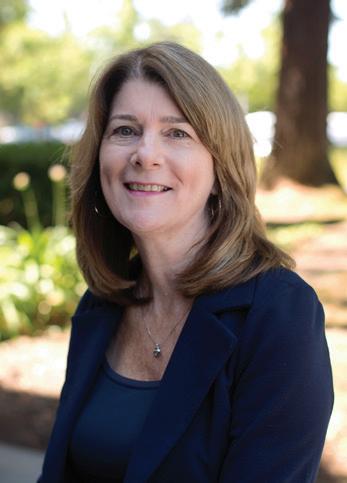
Congratulations to Valerie Fenstermaker, former executive director of the CVMA, for winning the 2021 AVMA Humane Award! The AVMA Humane Award is awarded every year to a nonveterinarian to recognize their achievement in advancing the welfare of animals through leadership, public service, education, research and product development, or advocacy. Val served more than 30 years at the CVMA, where she worked with the CVMA legislative team on over a thousand bills impacting the veterinary profession and well-being of animals, helped create the CVMA’s Eight Principles of Animal Care, Use, and Welfare, promoted the development of the California Veterinary Medical Reserve Corps, managed a multi-million dollar spay-andneuter program for feral cats, and much more. Congratulations, Val—we can’t think of anyone more deserving of this honor!

The AVMA has received multiple reports of shortages of pentobarbital, a drug commonly administered for companion animal euthanasia. The Federal Drug Administration’s Center for Veterinary Medicine (FDA-CVM) has contacted manufacturers of FDA-approved pentobarbital products to determine the cause of—and solution to— the shortages. The CVMA is in contact with the AVMA on this issue and will release any information as it becomes available. The AVMA is urging veterinarians to conserve supplies by strictly following dosage guidelines and to explore possible alternative euthanasia methods. Veterinarians should report any drug shortages directly to FDACVM at AnimalDrugShortages@fda.hhs.gov.
National Disaster Preparedness Month is recognized every September to promote disaster planning across communities. The California Animal Response Emergency System (CARES) assists the state with disaster planning as it pertains to animal welfare. CARES is an operational guidance system that helps with all aspects of animal care and management during disasters or emergencies, including planning and mitigation, search and rescue, evacuation, transportation, sheltering, veterinary care, and recovery. Visit cal-cares.com for more information.


This online guide is only available to CVMA members and is specially created for California veterinary practices. It provides a customized written safety and health plan for your practice, helpful forms and checklists, training resources, and more to assist in meeting mandated requirements. Your annual subscription includes yearly reminders, important quarterly notifications and updates, 24/7 online access to the guide, and regulatory and tech support.
The benefits are EASY, EFFICIENT, AND ESSENTIAL for every California veterinary practice.
EASY – An interactive step-by-step process that creates a written plan customized for your veterinary practice and guidance on implementing your Cal/OSHA program.
EFFICIENT – The guide includes everything you need to maintain Cal/OSHA compliance all in one place, including:
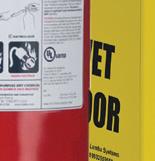

• A customized written safety and health plan with policy statements




• Training information for designated safety coordinator(s)
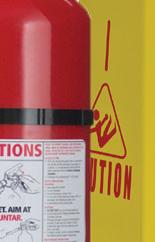
• Workplace inspection checklists and report forms



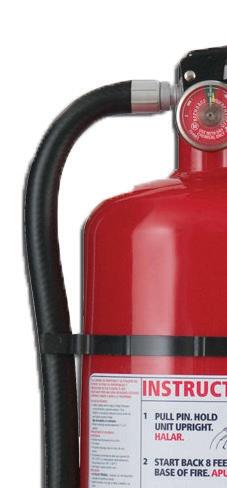
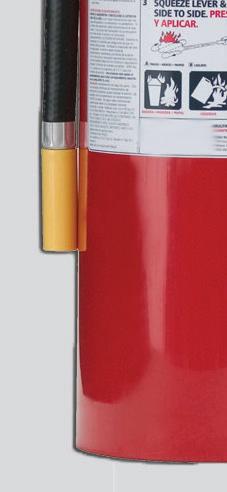
• Required posting information

• Employee training resources
• Recordkeeping assistance






ESSENTIAL – Cal/OSHA requires a current written plan and active ongoing health and safety program in every workplace. A Cal/OSHA inspector will ask to see your plan. Don’t leave yourself open to significant fines. If you are a current guide subscriber, be sure to renew your yearly subscription to retain access to the guide, which includes storage of your recorded plan.
1. Purchase online at cvma-inline.net/regulatory-guide.


2. Email staff@cvma.net.
3. Contact the CVMA at 800.655.2862.
This CVMA member benefit is made possible by a grant from:
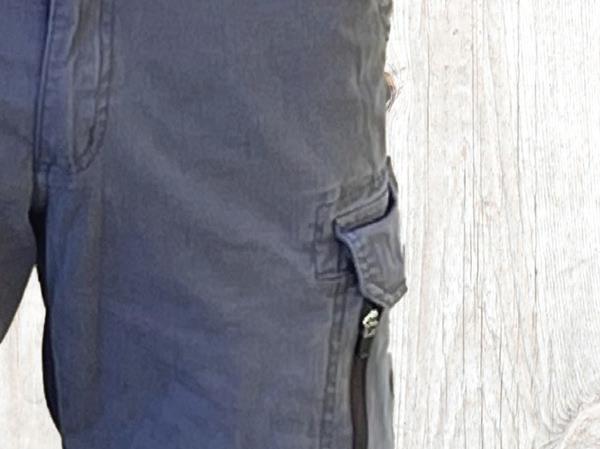


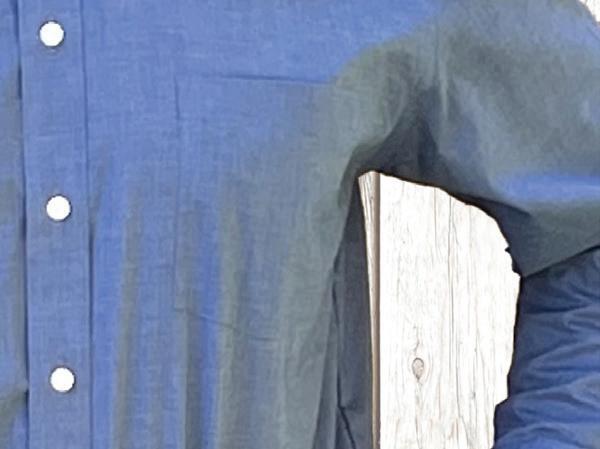


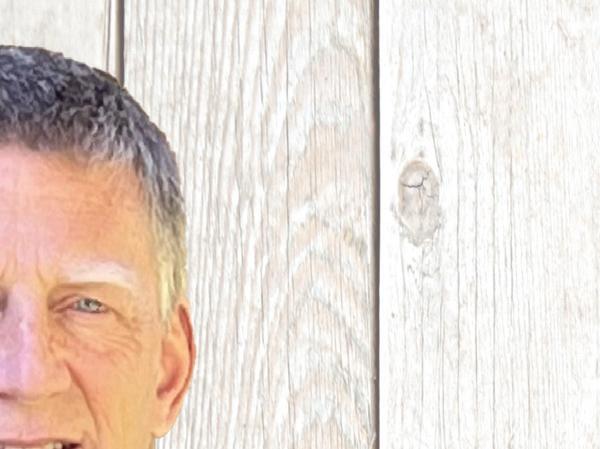
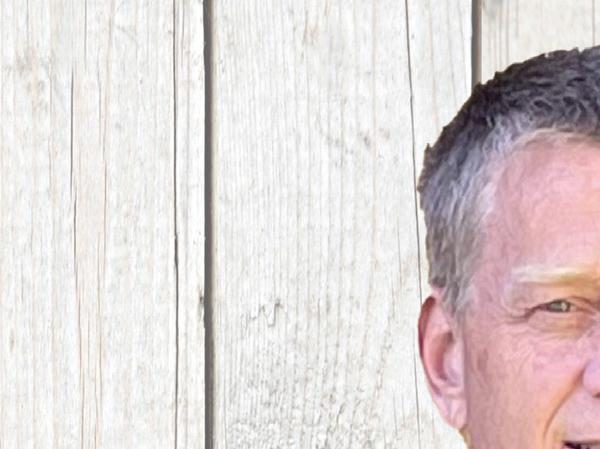
Principal Consultant, RVCS

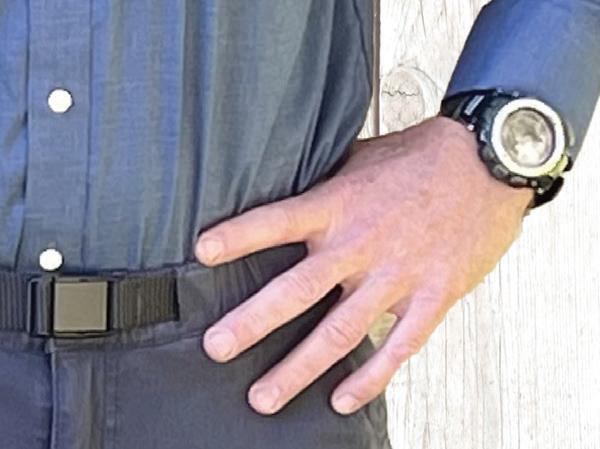






Members are the heart of the CVMA
Attending Veterinarian, Executive Director, and Associate Clinical Professor at UC San Diego
Graduate, UC Davis School of Veterinary Medicine

What is the best advice you have ever received?

If it is important—make the communication face to face. I am a CVMA member because:

I have been a member since graduation in ‘88 and I believe it to be important to participate in the advocacy of our profession.

If I won the lottery, I would build a wave park.
If I weren’t in the veterinary profession, I would be a fishing vessel captain.
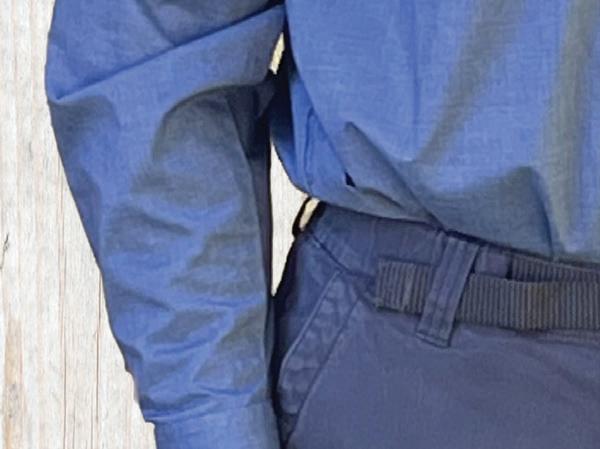


I would like to be known for seeking the truth.
Do you have any morning rituals?
Surf and mental focus.
When the 2021 legislative session began, the CVMA’s lobbyists flagged over 30 legislative bills with potential impact on the veterinary profession or animal welfare. The CVMA has been following those bills and, to date, several of them have either died or have been postponed until next year. The pandemic continues to create challenges at the State Capitol in allowing the Legislature to hear a large number of bills. As a result, several legislators have elected to pause their measures in 2021. But some bills are still active and are of particular importance to the veterinary profession. The following bills are being monitored by the CVMA Legislative Team, which is working with bill authors and committee consultants to represent the CVMA’s positions.
AB 1282 (Bloom) (coauthor Wilk): Veterinary medicine: blood banks for animals.
This legislation will transition California’s closed-colony canine blood banking model to a community-sourced blood donor system. The CVMA has worked closely with the Author’s o ce to ensure that blood banking safety and quality standards will be in place for communitysourced programs, and to preserve an adequate blood supply for California’s dogs. The CVMA has been actively involved in the issue of animal blood banking since 2019 and continues to participate in regular stakeholder meetings to represent the needs of the veterinary profession in preserving a safe and adequate supply of
blood and blood products and in determining when and how California will transition from the closed-colony model to a community-sourced model.
CVMA POSITION: Approve, Work with Author
BILL STATUS: Senate Business, Professions, and Economic Development Committee
AB 1535 (Assembly Business and Professions Committee)




Veterinary Medical Board: Sunset Review
The Assembly Business and Professions Committee and the Senate Business, Professions, and Economic Development Committee periodically hold joint sunset oversight hearings to review boards under the Department of Consumer A airs (DCA). The sunset review process provides an opportunity for the DCA, the Legislature, the boards, and interested parties and stakeholders to discuss the performance of the boards and make recommendations for improvements. The VMB is being reviewed in 2021, and its report to the Sunset Review Committee is posted on the VMB website. The CVMA also submitted a letter to the Sunset Review Committee with comments on issues addressed by the VMB in its sunset review report. The CVMA is representing the profession throughout the sunset review process.
CVMA POSITION: Watch, Work with Author
BILL STATUS: Assembly Appropriations Committee
The CVMA has submitted comments to the Joint Sunset Review Committee regarding issues with the California Board of Pharmacy (BOP), primarily concerning veterinary compounding. In recent years, the BOP has passed regulations and changed enforcement policies resulting in veterinarians facing increased di culties in obtaining compounded medications for in-house use and dispensation to clients. The CVMA has engaged the BOP directly on these issues but also feels that there is a need for legislative changes during the BOP Sunset Review. The CVMA has requested that one BOP-appointed member be a compounding pharmacist and that certain parts of the Pharmacy Law exempt veterinary pharmaceuticals to avoid unintended consequences in being able to provide medications to animals.
CVMA POSITION: Watch, Work with Author
BILL STATUS: Senate Business, Professions, and Economic Development Committee


SB 132 | SB 547 (Glazer): Animals: emergency response: California Veterinary Emergency Team program.
SB 547 will create a state-funded Veterinary Emergency Team at the University of California at Davis to assist the California Department of Food and Agriculture (CDFA) in developing and implementing all aspects of the California Animal Response Emergency System (CARES). Through numerous deployments to some of the largest disasters in California history, the CVMA has become familiar with the strengths and weaknesses in California’s animal emergency system and believes that SB 547 represents a major step forward in helping animals during disasters. SB 547 is merging into SB 132.
CVMA POSITION: Support BILL STATUS: Senate Budget Committee
For specific information on bills or to track CVMA-monitored bills through the legislative process, visit the CVMA’s online Legislative Action Center, which now has a new look and format. The Voter Voice platform makes searching for relevant legislation easier and more user-friendly. Check out the improved format by logging onto cvma.net and clicking on the Government tab.
AB 70 (Salas): Gene synthesis providers. WATCH
AB 253 (Patterson): Animal welfare. WATCH
AB 468 (Friedman): Emotional support dogs. APPROVE
AB 1306 (Arambula): Health Professions Careers Opportunity Program. WATCH
SB 252 (Wiener): Toxicological testing on dogs and cats. WATCH
SB 344 (Hertzberg): Grants: homeless shelters: pets and veterinary services. APPROVE
SB 453 (Hurtado): Agriculture: Biosecurity and Emerging Infectious Disease Fund. WATCH
SB 519 (Wiener): Controlled substances: decriminalization of certain hallucinogenic substances. WATCH
SB 703 (Hurtado): Diseased animals: laboratory services. SUPPORT
AB 258 (Villapudua): Emergency shelters: Emergency Housing and Assistance Program: pets. APPROVE
AB 384 (Kalra): Cannabis and cannabis products: animals: veterinary medicine. SUPPORT
AB 553 (Kamlager): Pet insurance. DISAPPROVE
AB 646 (Low): Department of Consumer A airs: boards: expunged convictions. APPROVE
AB 810 (Flora): Healing arts: reports: claims against licensees. WATCH
AB 864 (Low): Controlled substances: CURES database. WATCH
AB 995 (Gonzalez): Paid sick days: accrual and use. WATCH
AB 1026 (Smith): Business licenses: veterans. WATCH
AB 1102 (Low): Telephone medical advice services. WATCH
AB 1236 (Ting): Healing arts: licensees: data collection. DISAPPROVE

AB 1285 (Flora): Poultry health advisory committee: eradicate poultry diseases. SUPPORT
AB 1313 (Bigelow): COVID-19: immunity from civil liability. WATCH
AB 1435 (Carrillo): Noncannabis cannabinoids. WATCH
SB 376 (Stern): Wildlife: prohibitions: live animal markets. WATCH
SB 585 (Stern): Cats: declawing procedures: prohibition. OPPOSE
SB 772 (Ochoa Bogh): Professions and vocations: citations: minor violations. WATCH
This profession can be tremendously rewarding but it can also be incredibly taxing, both mentally and physically. This series—Renew—explores wellness for veterinary professionals from a variety of angles...physical, mental, and emotional. We hope these articles provide both insight and inspiration for a lifetime of wellness and renewal.





There’s no denying that the threat of negative reviews, comments, and cyberbullying looms in the minds of many veterinary professionals. But we also know that our online reputation and social media presence can be a positive driver for our practices, facilitating connection, education, and service utilization that we may not have had otherwise, especially over the last year. In addition to the toll negative online interactions can take on the practice, those e ects can sometimes trickle over into our personal lives. So how do we balance the good and the bad, personally and professionally? Here are some tips to help you stay sane (and safe):
Professional Use
Set up safeguards

While it seems like avoiding platforms like Facebook, Google, Yelp, and the like will help you avoid potential conflict, the reality is that it isn’t true. Not claiming your profiles or populating them with your information just means that those sites will make a platform for you—but now that there’s nothing on it that you control, you have no way of being notified and no way to respond to any negativity. Claim the social media platforms and online review platforms, set up notifications, and take control over their appearance and messaging. Facebook and Instagram, in particular, have options for business accounts that will help install additional safeguards—like page moderation (blocking certain words from appearing in visitor posts or comments), the ability to limit showing your page only to those in a certain geographical area or age bracket, and the ability to disable reviews and/or comments in the event of a cyberbullying
attack. Take a few minutes to make sure that all your platforms are set up and these features are enabled.
Make sure your clinic has a policy—and stick to it Craft a social media policy for your practice that addresses the who, what, when, where, why, and how of social media and online reputation usage. In particular, address who on the team has access to the page, when they should be interacting with it (most comments and reviews do not need an immediate after-hours response!), and when comments or reviews of concern are elevated up the leadership ladder, and how they’re dealt with. Practice owners and leaders should have frank discussions about what types of reviews and which reviewers should be addressed. Not every review and comment deserves a response, particularly if it can be reported to the platform, is not from a client, or won’t hold weight in the eyes of the types of clients your practice is actively cultivating. While many reviews fall in the “gray zone,” having a framework that deals with them is essential to preventing excessive stress in the heat of the moment.
Build your ambassador army, and celebrate the wins!
Many practices spend a disproportionate amount of time thinking about and responding to negative reviews compared to the time spent trying to generate positive reviews. Make leaving a review easy for clients with call-toaction buttons and links in emails, social media posts, and on the practice website, while showcasing your latest 5-star review regularly on your social media pages. Better yet, be sure to share reviews and positive comments with your entire sta !
Check your privacy settings
Even when we aren’t in charge of managing the practice’s social media accounts, our personal profiles can sometimes be discovered by our clients and the occasional keyboard warrior. Review your privacy settings and consider limiting who can see your content.
It’s easy to want to kick back and scroll through Instagram for a few minutes after a long shift, but be cognizant of 1) the amount of time you’re spending on social media, and 2) the content you’re following. We know that smartphone use, particularly when excessive, has been tied to stress, anxiety, and depression. Helpfully, we can now track how much time we’re spending on Facebook and Instagram each week, and it might shock you to check your usage. Set time limits for yourself or use an app like Forest to help stay on track. Think back to your original reason for wanting to be on social media—are you accomplishing that? If it’s looking at funny cat memes and that’s what’s in your feed, you’re doing great! If you joined so you could connect with your family but you rarely see their content, it’s time to review your connections. Make sure to set your Facebook News Feed preferences to ensure you’re seeing more of the content that matters. Unfollow old acquaintances who only contact you for pet advice and leave groups that don’t add some value to your life.

While personal profiles don’t a ord the same handy protections as business profiles, you can still set up a few measures to protect your personal reputation as well. Consider limiting your online interactions (particularly answering veterinary-related questions) with non-
friends and family (we’re looking at you, neighborhood Facebook groups).
Ignore messages from those not in your friends or family list. Screenshot and report any negative online interactions, block the o enders, and know where to look if things take an unwanted turn. Put your phone or computer away and put yourself first. Resources from the AVMA and Not One More Vet (NOMV) are excellent starting points for veterinary professionals, although additional helpful resources also exist outside the industry, such as StopBullying.gov. Lean on your colleagues, friends, and family for support, and don’t be afraid to contact the authorities if the situation escalates.
While social media and online reputation sites are a function of our daily lives, they can’t fully represent who we are as individual practices or individual people. Set up safeguards where you can, use your time e ectively, and reach out for help if you need it!
Caitlin DeWilde, DVMDr. DeWilde is the founder of The Social DVM, a consulting firm devoted to helping veterinary professionals learn how to manage and grow their social media, online reputation, and marketing strategies. Dr. DeWilde is a graduate of the University of Illinois College of Veterinary Medicine and a recipient of its Outstanding Young Alumni Award, as well as an alum of the AVMA’s Future Leaders Program. She served as medical director for a large AAHA/Fear Free/Cat-Friendly certified hospital in St. Louis before stepping back to focus on her marketing passion. Today, she divides her time between practice, consulting, and writing. She is the author of a new book from AAHA Press, “Social Media and Marketing for Veterinary Professionals,” and a columnist for Today’s Veterinary Business.


This wellness series is proudly brought to you by a sponsorship from Boehringer Ingelheim Animal Health.



Explore CE and your natural surroundings at the CVMA’s Fall Seminar! Located in beautiful Olympic Valley and just a short distance away from Lake Tahoe, our annual Fall Seminar will give you the opportunity to earn the CE you need while surrounded by swaying pines and picturesque mountains.
Enjoy mornings packed with enriching CE o ered by accomplished speakers in the veterinary field. Afternoons and evenings will be open for attendees to hike in the great outdoors, relax at the resort, and have fun with family, friends, and colleagues in the bucolic autumn scenery.
Seminar Hotel
Resort at Squaw Creek
400 Squaw Creek Road, Olympic Valley, CA 96146
Special Room Rate
$209 per night plus taxes until September 14, 2021. The hotel resort fee is included in the group rate.
Discounted rates are available until the deadline or until the group block fills up—whichever comes first.
Reserve your room online at cvma.net or by calling the hotel at 800.404.5544. Be sure to identify yourself as a CVMA Fall Seminar attendee to obtain the special rate.
Sponsored
by
DVM Track (Friday–Sunday • 12 CEUs)
Ophthalmology | Tomo Wiggans, DVM, MEng, DACVO
Emergency! Management of Blunt and Penetrating Ocular Trauma
Beyond the Schirmer Tear Test: A Discussion of Dry Eye Disease
The Third Eyelid Disease—It’s Not All About “Cherry Eye”
Why Won’t This #%$% Corneal Ulcer Heal?
Canine Glaucoma—How to Best Handle a High-Pressure Situation
When the Lights Go Out: Acute Vision Loss in Dogs and Cats
Gastroenterology | Katie Tolbert, DVM, Ph.D., DACVIM (SAIM) (Gastroenterology)
Manipulating the Microbiome (Parts 1 & 2)
Top Studies and How They Can Immediately Impact Your Practice
Infectious Diarrhea Panel: When and How to Use It
Diagnostic Approach to Feline Chronic Diarrhea
Therapeutic Management of Canine Protein-Losing Enteropathy
Technician Track (Saturday–Sunday • 8 CEUs)
Emergency and Critical Care | Amy Newfield, MS, CVT, VTS (ECC)
Is It an Emergency?
ER Cases from the Trenches
CPR: Basic Life Support
CPR: Advanced Life Support
Shock and the Initial Stabilization of the Emergency Patient
Seizures!
Heatstroke
Parvovirus: Anything New?
Not sure about joining in person? Join us in our new Hybrid Format!
For more information and to see course descriptions, visit the Learning tab at cvma.net or call 800.655.2862.
CVMA Member: m Yes m No
October 8–10, 2021 • Squaw Valley (Lake Tahoe)

Do you want us to use this information to update your CVMA profile? m Yes m No
Please check one: m DVM m RVT m Veterinary Staff m Other __________________________________________________________
Attendee Name (Dr.):
Company/Practice:
Mailing Address: m Work m Home
City/State/ZIP:
Phone (Required): Fax:
E-mail (Required):
Registration includes: Twelve maximum CEUs for DVMs, eight maximum CEUs for RVTs and CVMA CVAs, a syllabus, a certificate of attendance, and daily continental breakfast (in-person attendees only) for registered attendees.
In-Person Attendance by after
CVMA Members Aug. 31 Aug. 31
m DVM $315 $350
m RVT/Veterinary Staff $160 $195
Non-Members
m DVM $385 $420
m RVT/Veterinary Staff $190 $225
Virtual Attendance by after
CVMA Members Aug. 31 Aug. 31
m DVM $315 $350
m RVT/Veterinary Staff $160 $195
Non-Members
m DVM $385 $420
m RVT/Veterinary Staff $190 $225
Advance registration closes October 1, 2021
The Resort at Squaw Creek
400 Squaw Creek Road, Olympic Valley, CA 96146 Tel: 530.583.6300
Guests Breakfast Tickets
m Guests Continental Breakfast # @ $40/day $
Enclosed is a check for $
Charge my VISA/MasterCard/Discover/AMEX $
Credit Card Number
Expiration Date CVV Code
Cardholder Name
Cardholder Signature
The CVMA has secured special room rates of $209 per night for deluxe guestroom, $239 per night for fireplace suite, plus applicable taxes. Resort fee included in room rate.
Reservations: To book your room, call 800.403.4434 and reference the CVMA Fall Seminar or visit the Learning tab at cvma.net. The conference room rates are available until September 14, 2021, or until the group block fills up, whichever comes first.
Hotel parking: The hotel offers complimentary self-parking for overnight guests. Valet parking is $50 per night (parking rate subject to change without notice).
General Information
By registering for the CVMA Fall Seminar, I agree to the terms and conditons. The terms and conditions can be found at cvma.net under the Learning tab.
Cancellation/Refund Policy
All cancellation requests must be made in writing and submitted either by fax, email, or regular mail no later than September 10, 2021, to receive a full refund, less 10 percent administration fee. No refunds for cancellations or registrations received after this date.
California Veterinary Medical Association
1400 River Park Drive, Suite 100
Sacramento, CA 95815
By fax: 916.646.9156
By email: staff@cvma.net
If you have any changes or additions to this form after submission, please call us at 800.655.2862.
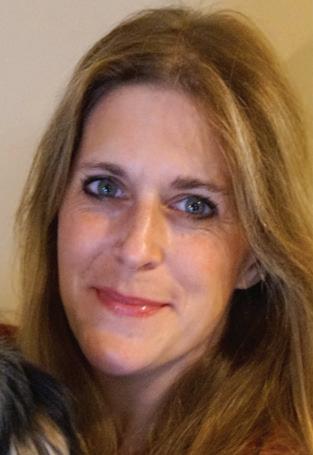 | 2021 Fall
| 2021 Fall
Cardiopulmonary arrest (CPA) occurs because of the cessation of spontaneous and e ective ventilation and a failure of the ventricles of the heart to contract, causing no systemic perfusion. There are myriad diseases or injuries that can cause CPA to occur.
There are three phases to CPR: Basic, Advanced, and Prolonged. Basic life support is limited to the ABCs (airway, breathing, circulation) of CPR. Recently, recommendations have changed “ABC” to “CAB” because it has been shown that starting with cardiac compressions o ers a better chance of survival. The goal is to support ventilation, oxygenation, and circulation by administering manual and external chest compressions and ventilation. Chest compressions are the most important part of any resuscitation. Too often, they are considered secondary to drugs or defibrillation.
Once basic life support has been initiated, a decision should be made very quickly if advanced life support techniques are needed. Most of the time they are needed, and quick intervention with defibrillation and drugs o ers patients the best chance of survival. Basic life support should be continued while advanced life support options are being prepared.
It is important to fully understand how to perform e ective chest compressions and what drugs are available during CPR so that a decision can be made quickly. Having the entire team understand how to perform appropriate CPR will o er the pet the best chance of survival.
Veterinary technicians and hospital sta are invited to join us for both the CPR Basic and Advanced Life Support lectures at the 2021 Fall Seminar on October 9,

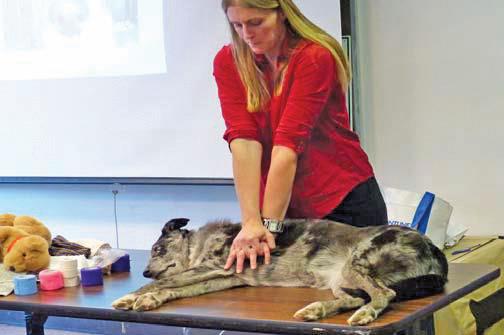 Track Speaker
Track Speaker
2021 in Squaw Valley. We will review the most up-to-date recommendations for basic life support, including videos demonstrating good compression techniques, and discuss why basic life support is more important than advanced life support. During the advanced life support lecture, drugs and defibrillation will be discussed in detail.










This year’s PacVet Live – A Sea of Virtual CE made a splash with attendees! The virtual conference featured two concurrent tracks where attendees could dive into 32 sessions on topics including avian/exotics, equine, practice management, shelter medicine, small animal medicine, small animal surgery, and technician-specific talks. Sessions were live and interactive, allowing for questions and answer periods with our fantastic speakers. The conference took place over four days: June 18, 19, 26, and 27. Thanks to the generosity of our sponsors, several attendees were the winners of fun raffle prizes, including $100 Amazon and VISA gift cards, an Apple watch, a Yeti gift bundle, and Cote’s Clinical Veterinary Advisor books. We also had winners of the daily Beach Trivia game who walked away with $250 Southwest gift cards. Although the virtual conference was a huge success, the CVMA’s PacVet staff misses the face-to-face contact with our attendees. PacVet will return to an inperson or hybrid event on June 2–5, 2022 in beautiful San Francisco. We hope to see you there!
Mary Berg, RVT, BS, RLATG, VTS (Dentistry)
Thomas Boyer, DVM, DABVP (Reptile and Amphibian Practice)
Megan Brashear, RVT, BS , VTS (ECC)
Anthony Carr, Dr.med.vet., DACVIM (SAIM)
Stephen Cital, RVT, RLAT, SRA, VCC, CVPP, VTS-Lam (Res. Anesthesia)
Jennifer Davis, DVM, Ph.D., DACVIM (LA), DACVCP
Scott Echols, DVM, DABVP (Avian Practice)
Juliette Hart, DVM, MS, CCRT, CVA, DACVSMR
Debbie Martin, LVT, CPDT-KA, KPA, CTP, VTS (Behavior)
Emily McCobb, DVM, MS, DACVAA
Kurt Selberg, DVM, MS, DACVR

Sara Thomasy, DVM, DACVO, Ph.D.
David Upchurch, DVM, MS, DACVS-SA
Shelly Vaden, DVM, DACVIM, Ph.D.
Jacqueline Whittemore, DVM, DACVIM (SAIM)
Jarred Williams, DVM, MS, Ph.D., DACVS-LA, DACVECC


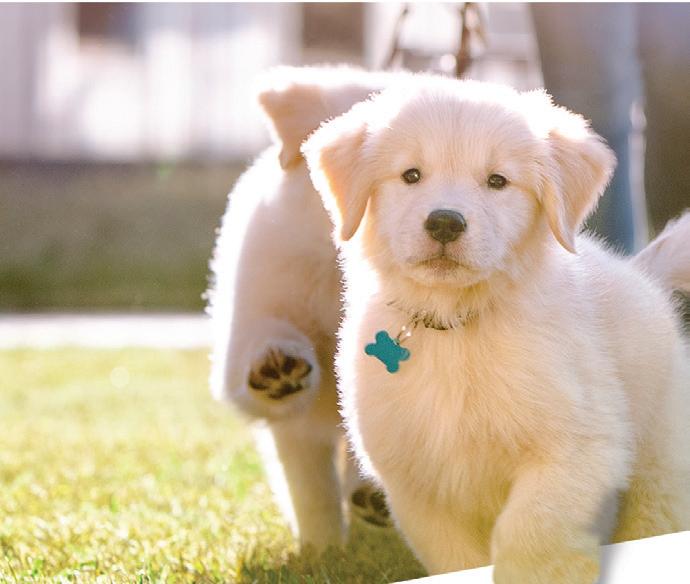
At Elanco, our mission is to help you improve the well-being of your patients and their families. That’s why we’re proudly sponsoring an engaging, four-part CE symposium so you can gain a deeper understanding of alternative pain management techniques.
We’re excited to see you at the show, but you don’t have to wait to earn the CE credits you need. Visit Experience.Elanco.com to get started, and subscribe for the latest updates.


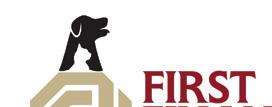

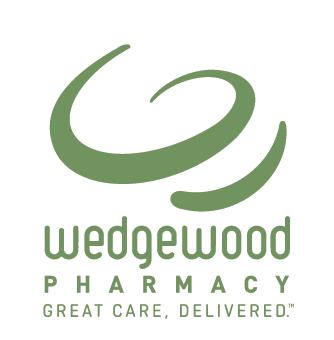
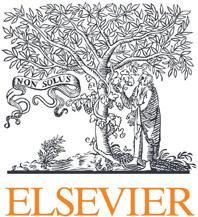
Antech Sound Imaging
Assisi Animal Health
Banfield Pet Hospital
BCP Veterinary Pharmacy
Blue Natural Veterinary Diets
Boehringer Ingelheim
CareCredit

Christian Veterinary Mission
Covetrus
Elanco Animal Health
Elsevier
Epicur Pharma

First Financial Bank - Veterinary Lending Division
Flea Destroyer
Fujifilm Sonosite
Hill’s Pet Nutrition, Inc.
Karl Storz Veterinary Endoscopy America, Inc.
Medical Pet Shirts International
Pet Health, A Division of Women’s International, Inc.

PetLink Microchips
Purina Pro Plan Veterinary Diets
Samsung Ultrasound (A & E Medical Systems, Inc.)
Standard Process, Inc.
Trupanion
Veterinary Information Network (VIN)



Veterinary Insurance Services Company (VISC)
Wedgewood Pharmacy




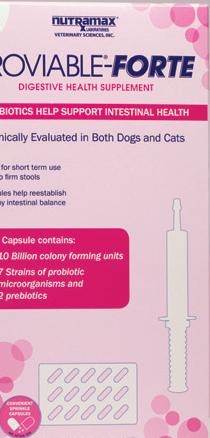

AVAILABLE FROM YOUR VETERINARIAN

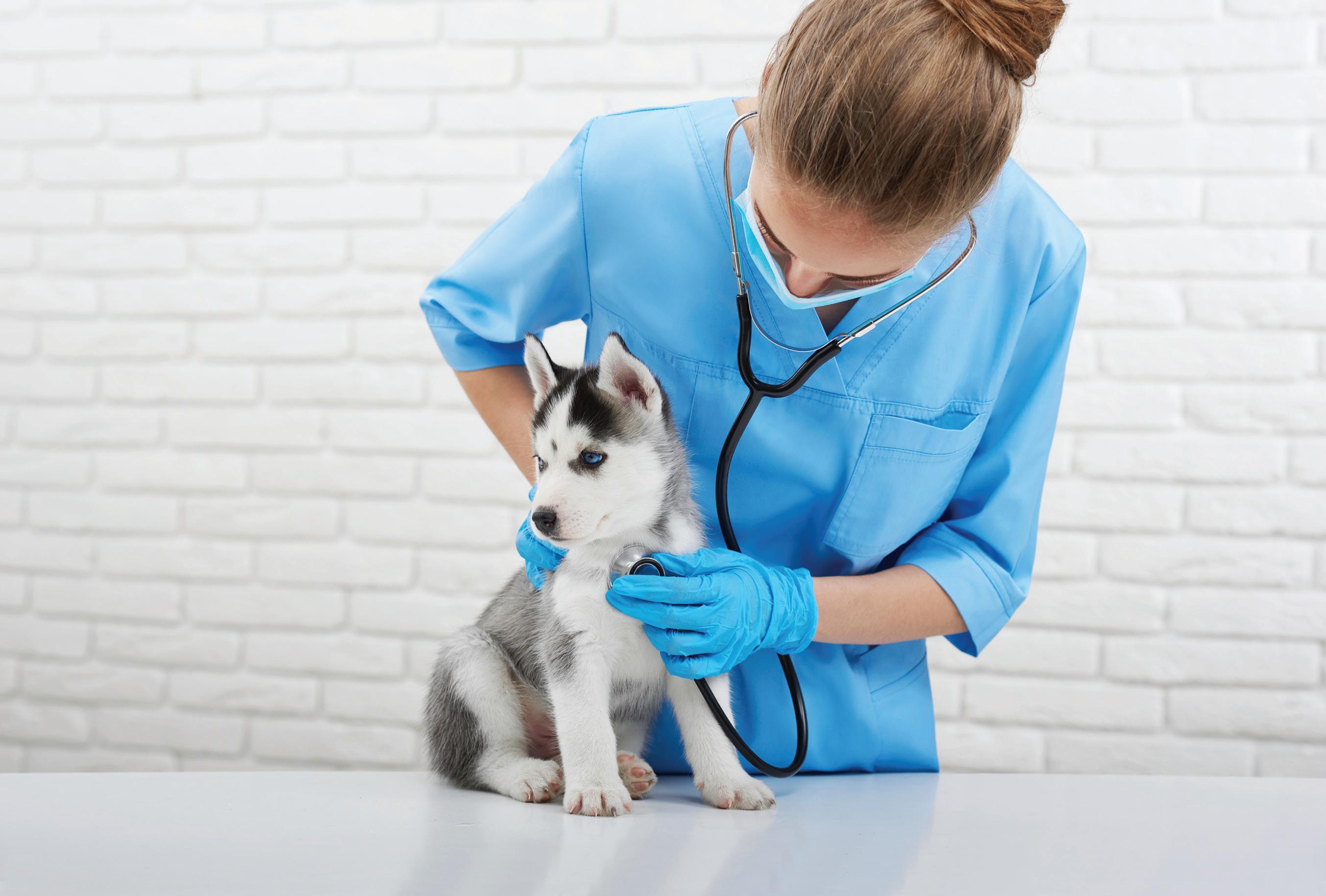











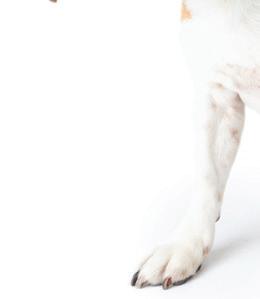
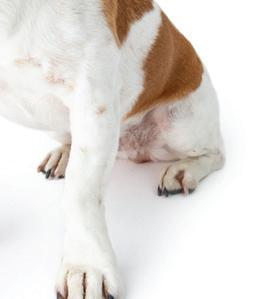
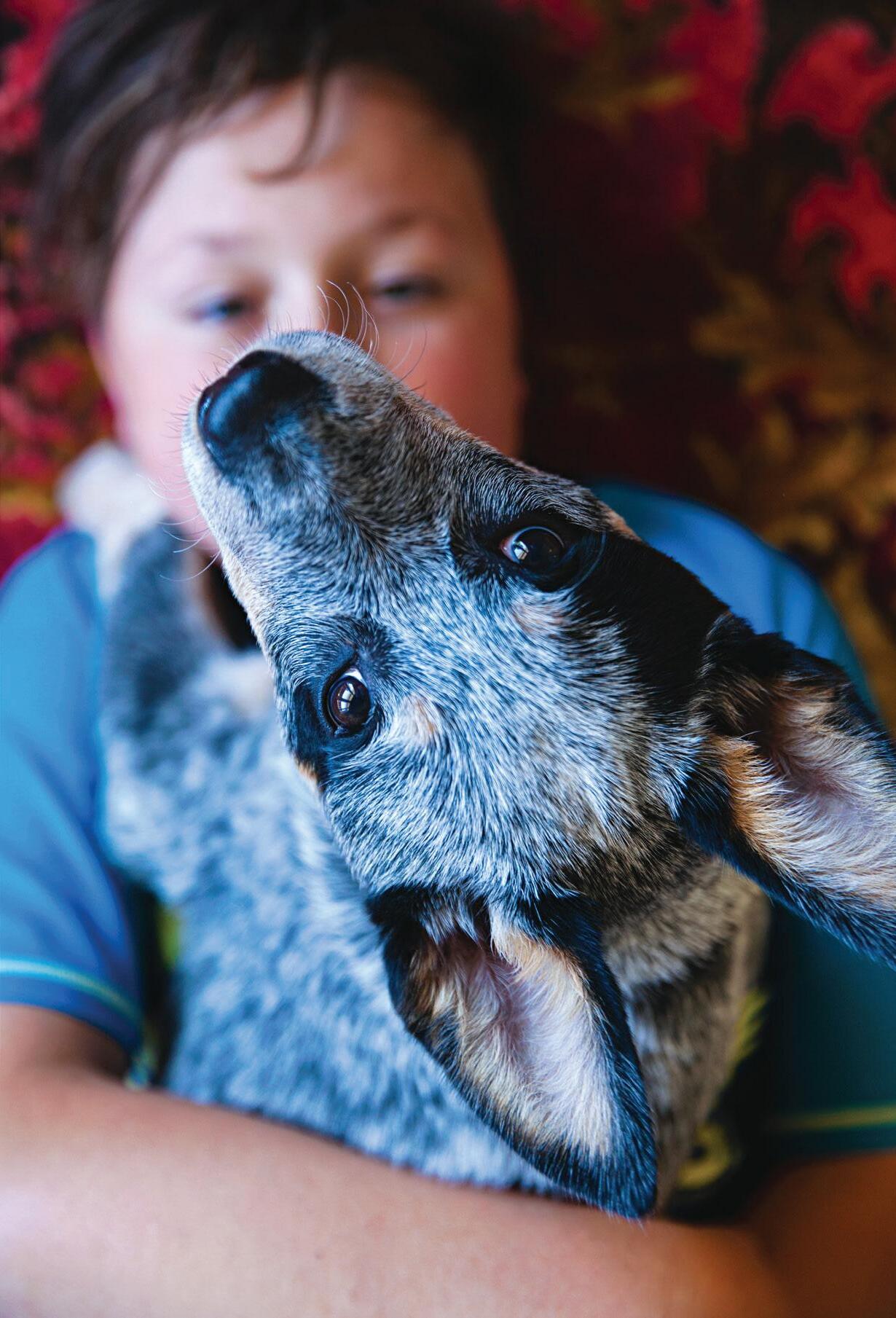








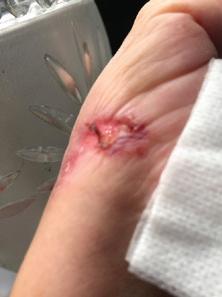
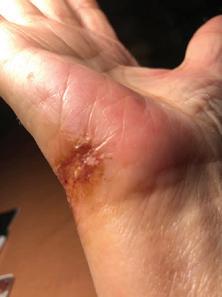

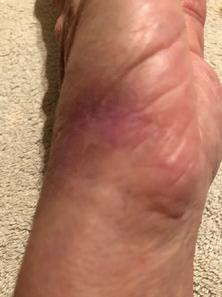
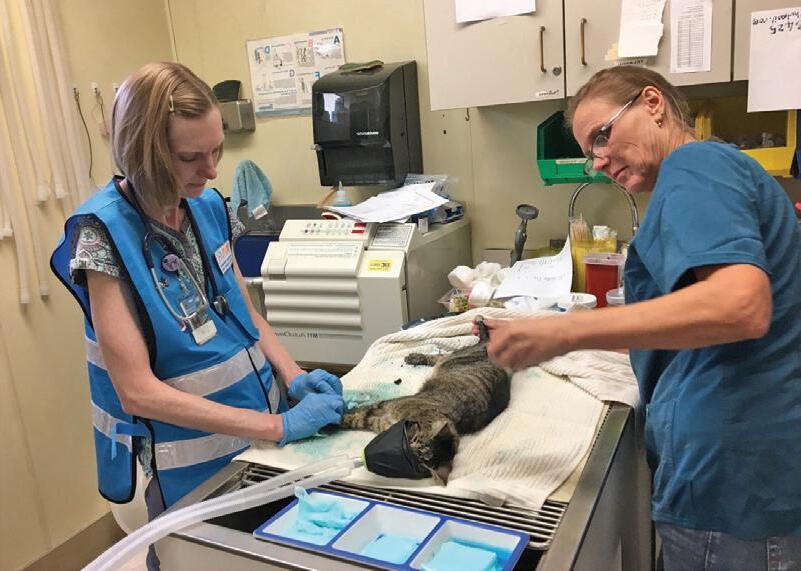
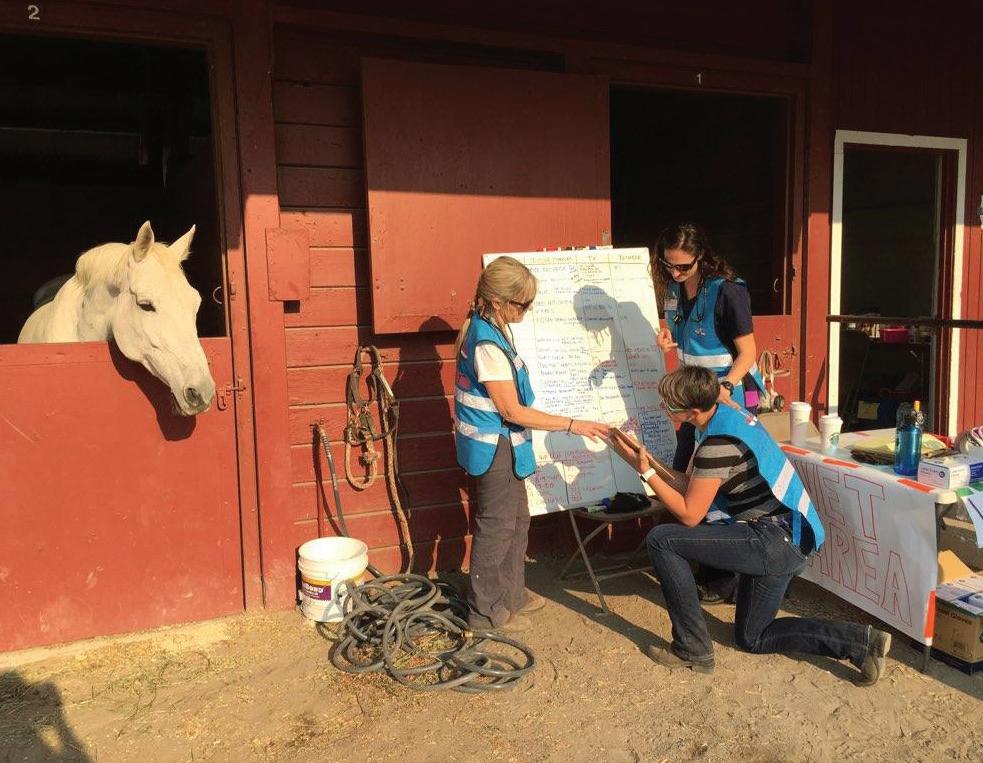
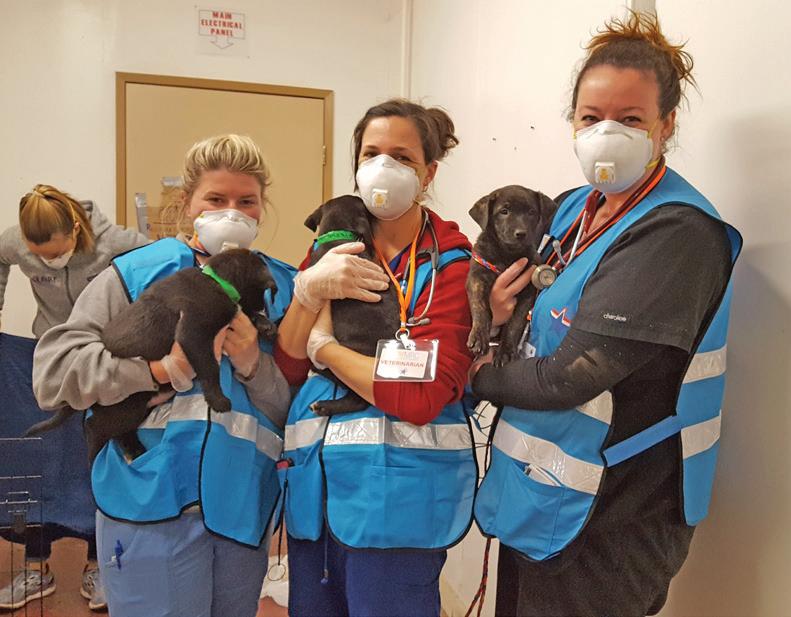



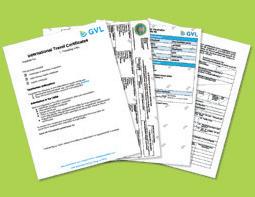


With veterinarians, we share in a mission so relentless, it adds an entirely new dimension to the world of preventive care and therapeutics. More than passion. More than dedication. More than expertise. Because animal health isn’t just our profession. It’s our calling. And together, we are more than medicine.











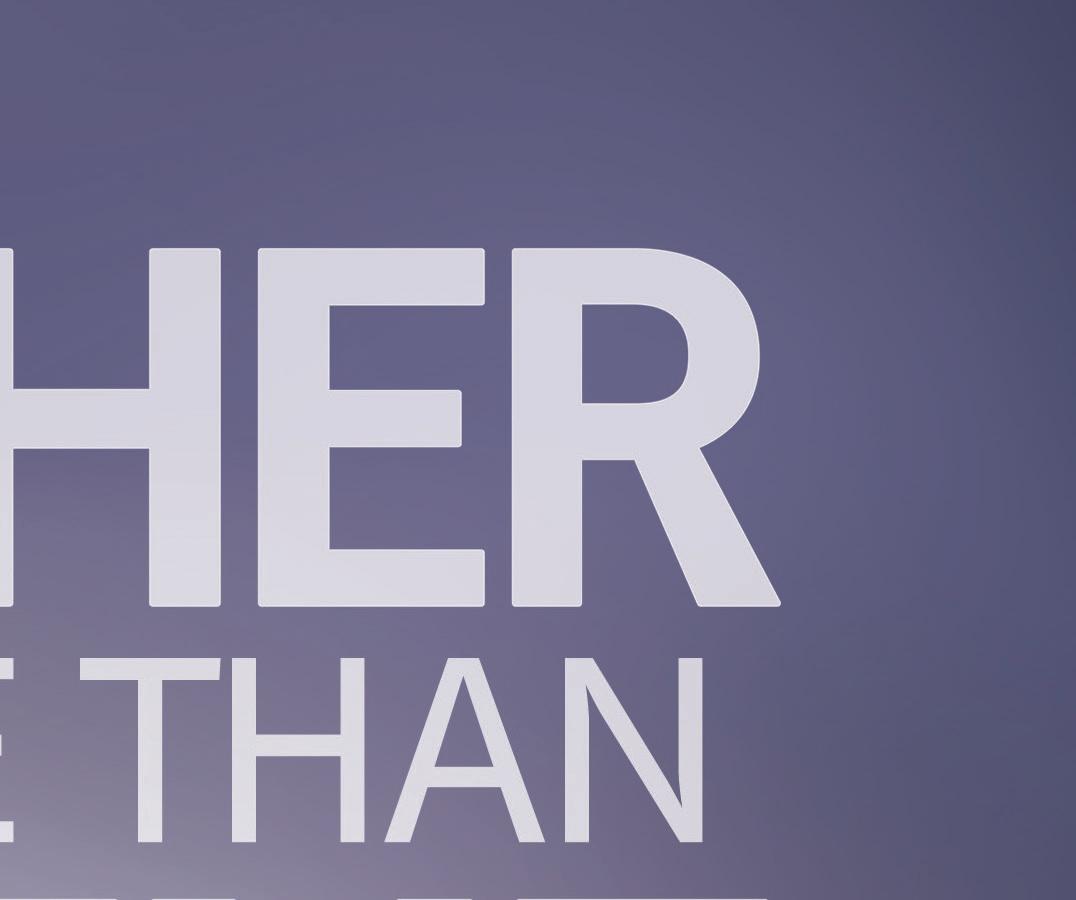

 ©2020 Boehringer Ingelheim Animal Health USA Inc., Duluth, GA. All rights reserved. US-PET-0064-2020
©2020 Boehringer Ingelheim Animal Health USA Inc., Duluth, GA. All rights reserved. US-PET-0064-2020
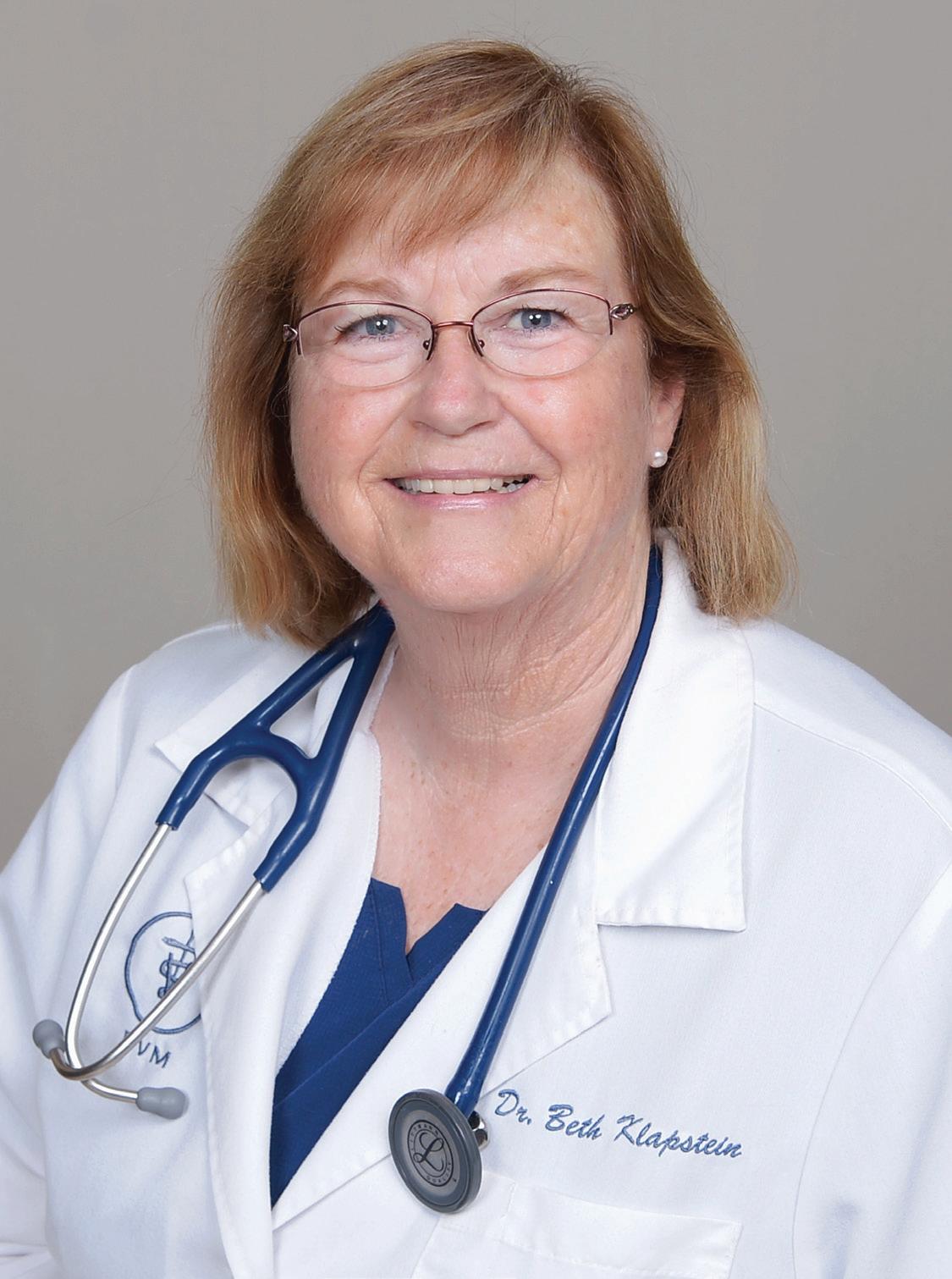
Iam delighted to have the honor of serving as your next CVMA President. I have enjoyed the camaraderie of the CVMA boards and committees on which I have served over the last 20 years. It has been exciting and rewarding to be part of all that the CVMA does in defending and promoting our profession, and I look forward to leading the association through the challenges of the coming year. I encourage each of you to become involved and be an active player in organized veterinary medicine, whether at the local, state, national, or international level.
I have always felt the need to be a contributing part of a larger whole. That probably started with being a Navy brat and one of six kids. My parents, Rear Admiral Richard E. Fowler and Jean Ray Fowler, moved frequently as we were growing up. I was born in central Florida where I also graduated from high school and college, but a lot happened in between. My family lived in Washington D.C., Washington state, Virginia, Florida again, California, Okinawa, Japan, Hawaii, and then back to Florida when my parents retired.

Throughout my childhood, I attended 13 schools before graduating from twelfth grade. However, I always had my siblings Carolyn, Pam, Rich, Deb, and Tom and my parents there through work and play. And play we did. My dad had a small, 26-foot cabin cruiser, the Quittin’ Time. We would go water skiing and camping on the rivers and lakes of Florida. When we lived in Okinawa, my dad and all the kids who were old enough learned to scuba dive on the beautiful coral reefs of the South Pacific. We traveled to Taiwan, the Philippines, Thailand, and Hong Kong before we left Southeast Asia. There was always something fun and adventurous to do together.
It took meeting my husband Tom to move me from Florida back to California. We met at my sister’s wedding when he accompanied my cousin to Bimini on a fishing trip. If you ever want to hear a good “how we met” story, just ask me. Tom and I lived in Florida first, where my son Tommy was born. He was three years old when I entered vet school at the University of Florida.
I cared for lab animals while in school; then, after doing yearling sales preparation on some thoroughbred horse farms, I started work at the UF Horse Research Center. I managed the UF Horse Teaching Unit in Gainesville before transferring to the UF College of Veterinary Medicine Equine Reproduction Lab. There, I worked on my Masters in Veterinary Science degree with Dr. Michelle LeBlanc, who was my boss and mentor. Dr. LeBlanc had me present my Master’s work on streptococcal uterine infections in mares at the International Equine Reproduction Symposium in Newberry, England.
The research was fascinating, but I realized I still wanted to be a veterinarian. I enjoy pets and the people who are kind enough to care for an animal. The support of my family and my mentor and having worked at the college made the transition to my DVM program go smoothly. After graduation, I worked a year in mixed practice, and then Tom, Tommy, and I headed out to California where Tom and his family grew wine grapes. That was back in 1998.
I settled in with my new job as a small animal practitioner in the rural areas around Lodi. I worked as an associate in a three-doctor practice with Dr. Jan Valinoti. I left that practice to do house call and relief work for a couple of years and began looking to buy a practice. With the help of Dr. Ron Laub, my new business partner Dr. Valinoti, and I bought Mokelumne River Veterinary Services. It is a beautiful mixed practice facility in Lockeford. Our dedicated, kind sta and loyal clients make each day at work a blessing.
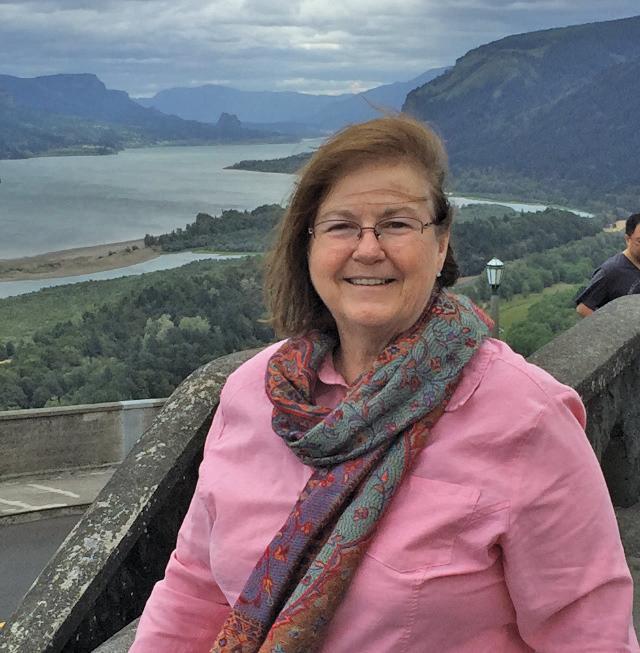
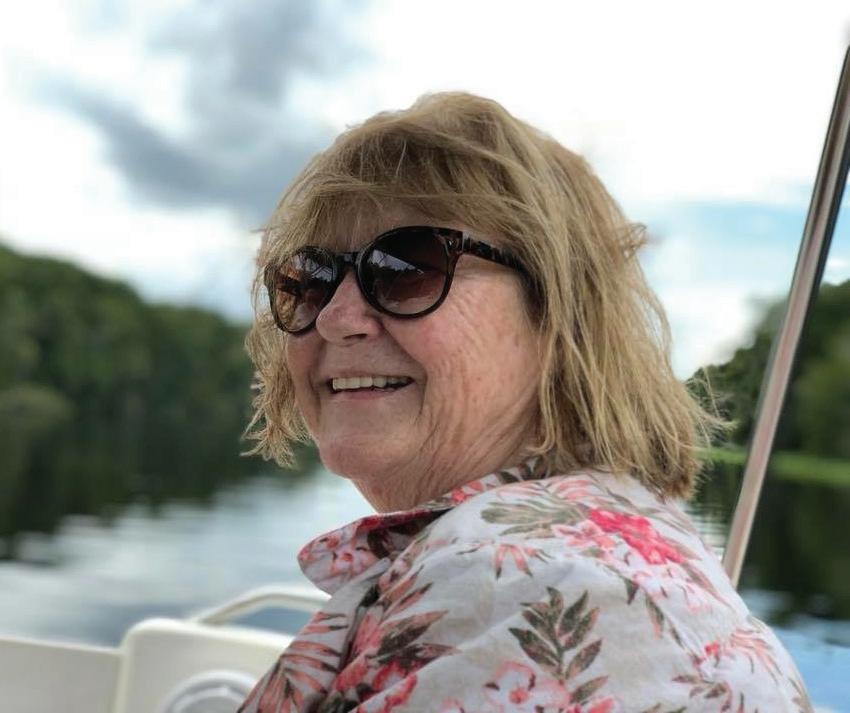


When I first arrived in California, one of the local vets, Dr. Penny Hodge, invited me to join the Northern San Joaquin Veterinary Medical Association (NSJVMA), where I became the Area Representative for San Joaquin County. This had me calling on the local veterinarians to help with the county rabies clinics, transporting supplies, and setting up clinics. It was a great opportunity to meet other veterinarians and work with local animal control.
In my time as Area Representative, President-Elect, and President, I learned the importance of dialogue between our profession and the government entities with which we are intertwined. For two terms, NSJVMA also sent me to be their House of Delegates Representative to the CVMA. There, I learned about advocacy and the importance of being at the table for the discussions that a ect all of us in the veterinary profession. When my terms expired, I stayed involved by joining the CVMA Political Action Committee and rising to Chair for my last year. Then Dr. John Shaner recommended that I apply for one of the CVMA Board of Governor-at-Large positions. Again, new vistas were opened as each Governor is assigned as a liaison to several di erent committees.
CVMA does amazing work in so many ways. Legislative advocacy, disaster relief, animal welfare, insurance for our members, and of course continuing education are just a few of the benefits CVMA provides. These services are part of the reason that the CVMA is nationally recognized as an innovative leader.
The challenges we face each year as an association allow us to shape the future of our profession one step at a time. This year, I will help guide those steps by listening well to gain a full understanding of the new issues while carefully considering the broader implications of what we do. Because what we do does matter. What each one of us does matters. I invite you to jump in and get involved. Whether you join your local association like our new Delta VMA, or the CVMA committees or boards, or the AVMA or other organized veterinary associations, it is your voice that makes a di erence. Join, get involved, and stay involved. Help shape the future of our profession.
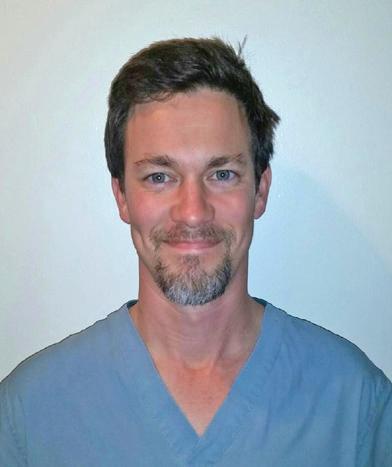
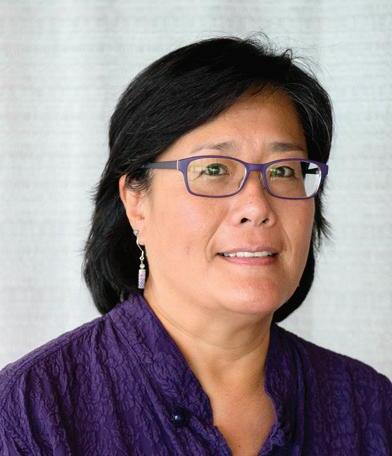









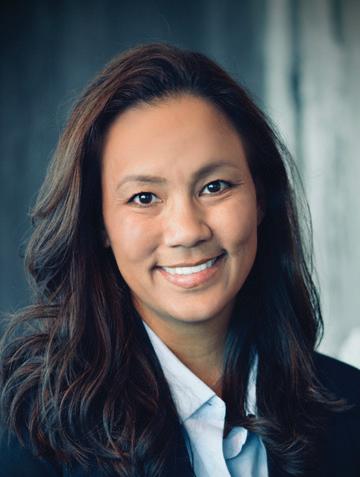



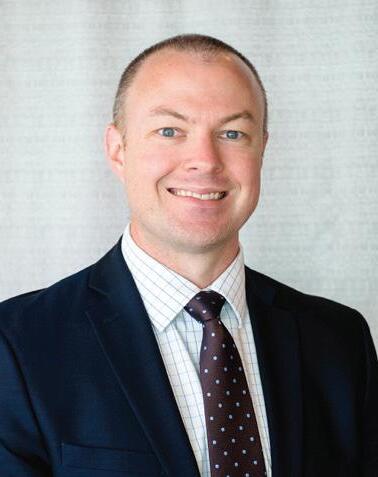

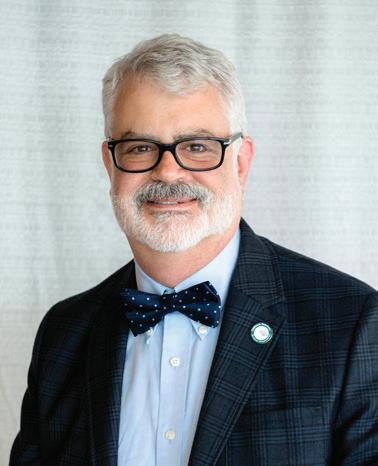
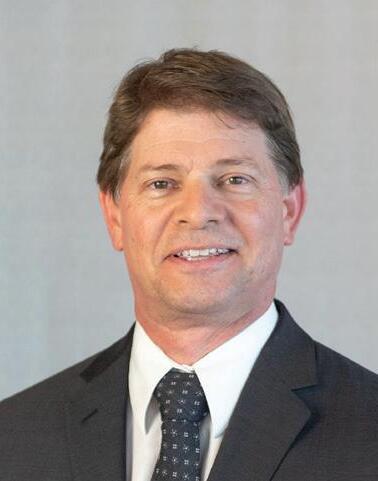

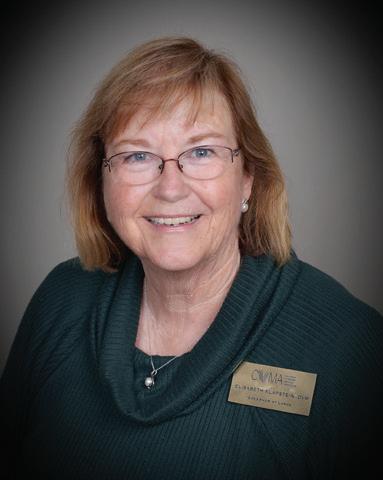
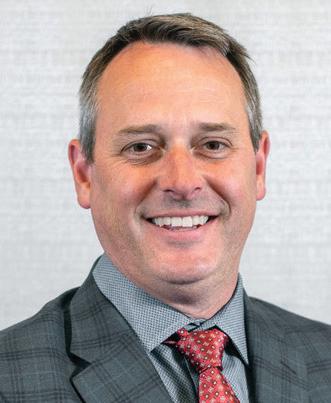
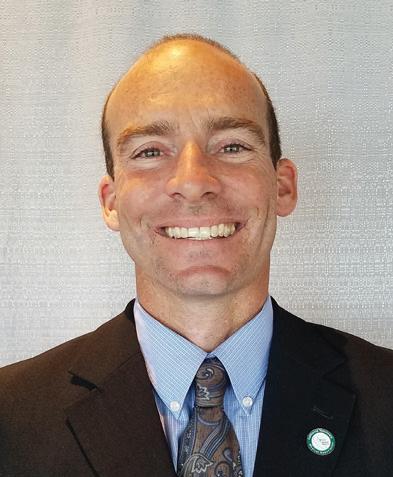
The following individuals pledged to serve in their elected positions for the 2021–2022 year after being installed on Friday, June 25 during a virtual ceremony. Outgoing members were recognized and thanked for their many contributions to the CVMA, and Dr. Elisabeth Klapstein was sworn in as the 2021–2022 CVMA president.
Dr.
Dr. Rode has served various roles for the CVMA over the years, including serving as a member on the Legislative Committee, as chairman of the Political Action Committee, and as an alternative delegate for the House of Delegates. Most recently, he served as the Memberat-Large for the CVMA Board of Governors in 2020–21. Dr. Rode has also served as the president of both the Sacramento Valley Veterinary Medical Association and the California Veterinary Medical Foundation. He coowns Woodland Veterinary Hospital, where he has been working since earning his DVM at UC Davis in 2006.
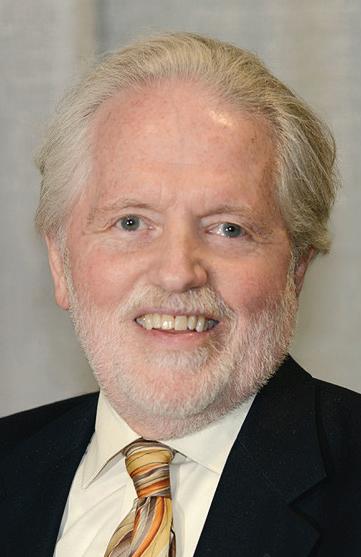
Dr. James White – District III
Dr. White co-owns the Citrus Veterinary Clinic in La Verne, CA with his wife of over 20 years. He is a member of the AVMA, the American Association of Bovine Practitioners, the Academy of Dairy Veterinary Consultants, the Southern California Veterinary Medical Association, and the Orange Belt Veterinary Medical Association. He is also on the advisory committee for the CalPoly Pomona Registered Veterinary Technician Program. Dr. White graduated with an MS in Veterinary Preventive Medicine and additionally earned his DVM degree at The Ohio State University in 2010.
Dr. Peter Mangold – District VIII
Dr.
Dr. Karle earned his DVM from the UC Davis School of Veterinary Medicine in 1999. He is the owner of Mid-Valley Veterinary Hospital in Orland, CA. Dr. Karle has continually been active in the CVMA since he started as a student member on the Board of Governors while at UC Davis. He has been the chair of the CVMA Agriculture Committee since 2005 and is a member of the Animal Welfare and Legislative Committees. Dr. Karle is also a member of the American Association of Bovine Practitioners, the American Dairy Science Association, the AVMA, and the Society for Theriogenology.
Dr. George Bishop – Treasurer
Dr. Bishop was installed as CVMA treasurer. He owns The Animal Hospital at the Crossroads in Carmel and is a member of the Monterey Bay VMA. Dr. Bishop, a former board member and president of the CVMA, serves on multiple CVMA committees and served as the CVMA’s delegate and alternate delegate to the AVMA House of Delegates. He received his DVM degree from The Ohio State University in 1965.
Dr. Jodi Woods – District I
Dr. Woods currently owns the Cardi Animal Hospital & Wellness Center in Encinitas, CA. Dr. Woods is certified in canine rehabilitation and veterinary acupuncture and is one of only 136 veterinarians in the world to hold the Certified Veterinary Pain Practitioner title, also making her the only veterinarian in San Diego County to hold all three certifications. Dr. Woods earned her DVM from the University of Wisconsin – Madison.
Dr. Mangold graduated with his DVM degree from the UC Davis School of Veterinary Medicine in 1997 with a focus on small/companion animal surgery and medicine. Dr. Mangold was also Contra Costa County’s CVMA representative to the House of Delegates and is a member of the AVMA. He currently works as the medical director and managing veterinarian at the Alamo Animal Hospital in Alamo, CA.
UC Davis – Alison Pankowski
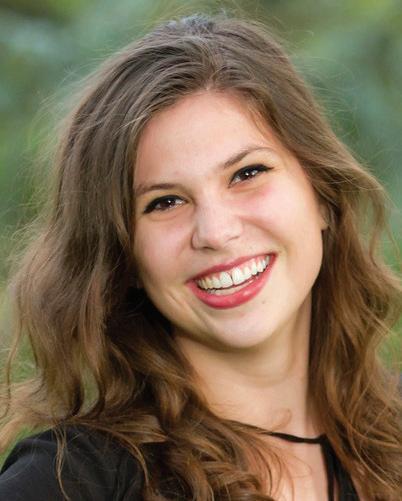
Alison Pankowski earned her B.A. in Public and International A airs at Princeton University in 2015 and then completed a post-baccalaureate program at the University of Pennsylvania. She is currently developing veterinary software to help manage referral records alongside her sister, also a veterinary student. Alison plans to pursue an internship and specialty residency when she completes her DVM and hopes to follow in the footsteps of her mother by being an active member of the CVMA.
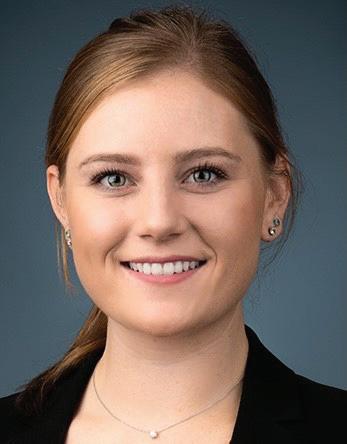
WesternU – Katelyn DeVore
Katelyn DeVore graduated from UC Davis with a B.S. in Animal Science in 2018. She is part of the Student Chapter of the American College of Veterinary Pathologists and is currently specializing in mixed animal medicine. Katelyn dreams of either pursuing public health further and working for the USDA or continuing her education and going onto a residency in anatomy or clinical pathology.
The California Licensing Curriculum (CLC) is a three-day live and interactive online course o ering 27 CEUs. It enables qualified veterinarians to obtain a permanent veterinary license in California without taking the state board examination. For a full description of qualification requirements and additional details, visit the Learning tab at cvma.net. California veterinarians seeking CE are also welcome to attend. State law requires the CLC to be conducted in an in-person format, but the Veterinary Medical Board (VMB) and the California Department of Consumer A airs (DCA) have issued a temporary waiver to allow the CLC to be held virtually this year due to social gathering restrictions from the COVID-19 pandemic.
Register online by visiting the Learning tab at cvma.net or by phone at 800.655.2862.

August 25, 2021 5:30 PM–6:45 PM (1.5 CEUs) | August 31, 2021 12:30 PM–1:45 PM (1.5 CEUs)
MSc, Ph.D.
The veterinary profession is one of the least diverse professions in the United States with regard to underrepresented and historically marginalized populations. Participants will appreciate why creating more diverse and inclusive veterinary teams is critical to the profession’s endurance and to the people and patients it serves, and will gain an understanding of the meaning of popular terminology related to diversity, equity, and inclusion (DEI). Dr. Suzie Kovacs will demonstrate how individuals can reflect on their own biases and come to understand that uncomfortable conversations may be a necessary component of progress. Through sharing some of her personal experiences, Dr. Kovacs hopes to be of benefit to others who are on a similar journey. This webinar will be of interest to those who are new to DEI discussions, as well as anyone committed to working with others to create a healthier and more robust veterinary profession. This seminar is complimentary to all CVMA members and non-members. Sponsored by
November
Marmaduke, Esq., Wilke
Employers with five or more employees must provide sexual harassment and abusive conduct prevention training for all employees every two years. New supervisory employees must still be trained within six months of assuming their supervisory position, and new non-supervisory employees must be trained within six months of hire. Additionally, temporary, seasonal, and other employees hired to work less than six months require this training within 30 calendar days after the hire date or within 100 hours worked, whichever comes first.
This webinar will meet the requirement for one hour of training for non-supervisor employees and two hours of training for supervisors.
Register online by visiting the Learning tab at cvma.net or by phone at 800.655.2862.
he tendency of fleas to return repeatedly, despite diligent use of commonly recommended flea-control products, can be frustrating to clients and veterinarians alike. However, a natural product that interrupts the flea life cycle offers a long-term solution that has been used successfully for more than 25 years.
Flea Destroyer, produced by Organic Control, Inc., employs beneficial nematodes (Steinernema feltiae) which naturally live in soil, bark and ground litter. These microorganisms travel through soil and infiltrate the body cavities of flea larvae, carrying a bacterium that is lethal to them.

California veterinarian Gay Zambrano, whose presentations provide clients with effective strategies for flea control, notes that, “Fleas spend 80–90 percent of their life cycle somewhere other than on the patient. Stopping them in the larval stage is essential to resolving the problem in the longer term.”
Zambrano also notes that “clients increasingly express a desire for solutions that are natural and free of harmful chemicals, as well as people, pet and planetfriendly.” Flea Destroyer meets these criteria. The nematodes that are lethal to flea larvae are harmless to beneficial insects such as ladybugs, lacewings and praying mantids. And because Flea Destroyer contains a natural predator, flea larvae don’t develop resistance which can happen in the case of chemical products.
Prepared simply by adding water, Flea Destroyer can be applied to different parts of a lawn and garden using a hose-end sprayer, pump or tank sprayer, or watering can. One container provides sufficient beneficial nematodes to kill the flea larvae in approximately 2,000 square feet of yard under ideal conditions, or 1,000 square feet for heavier infestations. Persistent problems may require a second application. While the product’s larva-killing activity may persist for up to two years, annual applications are recommended.
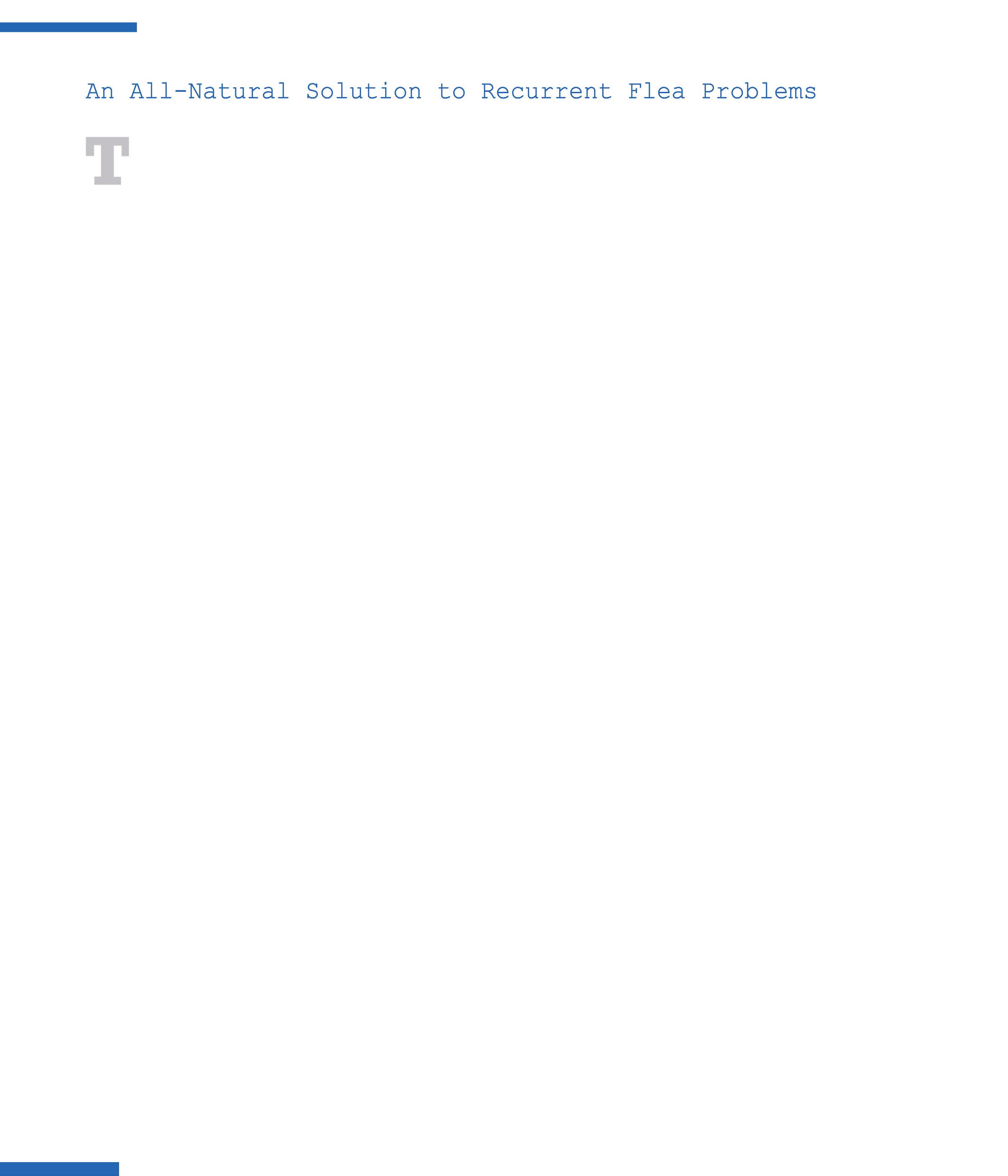
In this issue, we depart from our normal, one-subject legal article to frequently asked questions posed by CVMA members through the CVMA Legal Services Program. CVMA attorney Steve Marmaduke of Wilke Fleury LLP provides answers.
Ireceived a letter from the Veterinary Medical Board (VMB) advising me that it is investigating a consumer complaint about the care I provided to “Fluffy.” The VMB is requesting that I provide copies of medical records and comments responding to the complaint. What should I do?
First, let’s address what NOT to do. Do NOT ignore the letter. Do NOT make “corrections” or “additions” to the medical records. Do NOT assume that because you provided Flu y outstanding medical care this will go away. Of equal importance, do NOT assume that you are powerless to respond.
Although the VMB’s letter may appear to be merely requesting records, understand that this correspondence with you is part of an investigation that could have adverse consequences on your license. Your first step is contacting your insurance broker, such as Veterinary Insurance Services Company, to report the matter, as some professional liability insurance policies provide a limited defense to administrative claims against your license. If you don’t have such coverage, you should still retain an attorney to counsel you. Attorneys who have experience with the VMB may be able to provide valuable advice regarding your options, defense strategies, and prospects for success. They can also lessen your burden by interfacing with the VMB to minimize your risk, defend your actions, or negotiate a favorable settlement.
Whether discipline is imposed often depends on the facts. The statutes and regulations under which the VMB operates are not always clear, especially when applied to di erent case scenarios. Good advice and representation may save you time, stress, costs—and your license.
What should be my primary concern when the VMB contacts me about a consumer complaint?

Consumer complaints often arise out of an emotional reaction to the loss of or a perceived injury to a beloved pet. There are standard of care issues that can be of concern, but frequently the ultimate issues are unrelated to care provided to the patient and instead center on the condition of the medical records.
When the VMB is investigating a consumer complaint against a veterinarian, its first step may be to request a copy of the relevant medical records. At that point, the adequacy of the medical records will become a primary focus. All veterinarians should be intimately familiar with the recordkeeping requirements of the Veterinary Practice Act (Title 16, California Code of Regulations, sections 2030 et seq.) and should maintain their records accordingly. Simply put, if it does not appear in the medical records, it didn’t happen.
I was offered a new job. The employment agreement includes a provision that I will not compete with the employer after the termination of my employment. Aren’t covenants not to compete in employment agreements unenforceable in California?
As a general principle of law, provisions in an employment agreement barring an employee from competing with the employer after the termination of employment—also known as “covenants not to compete”—are unenforceable as an unlawful restraint of trade under Business and Professions Code section 16600. Nonetheless, they appear in employment agreements and can be problematic for employees.












Some employers will attempt to circumvent the prohibition, either by a broadly drawn confidentiality provision or a provision that prohibits the solicitation of any clients of the employer. The enforceability of these provisions is questionable. Some employers, particularly based outside of California, may provide that other state laws shall govern the employment relationship, which may make the covenant not to compete enforceable.
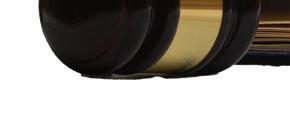


Employment agreements are significant legal documents governing the relationship between the employer and employee. Covenants not to compete and other terms applying after the end of the employment relationship may impact an employee’s future and should be carefully reviewed by a qualified attorney.
I am presently a sole proprietor. Should I form an entity that protects me from liability? What are my options?

Veterinarians may form a corporation to limit their liability. A corporate structure may have tax advantages as well. In general, corporate status is advantageous and recommended. But it is not a “one size fits all” matter. A decision to form a corporate entity should include
consideration of the risk exposures, the cost of forming and maintaining a corporation, and the assets that the veterinarian is seeking to protect.

Balancing the risk of operating a mobile practice with few assets, significant debt, and no employees may be di erent from owning a multi-doctor practice with significant sta , a primary residence, and vacation property. For example, the risks of malpractice and vehicle liability for the solo house call or mobile practitioner can be adequately covered by insurance. The owner of a larger practice may have exposure to other risks that may be limited, but not eliminated, by insurance.
Although forming and maintaining a corporation is not expensive, there are formation, legal, and accounting costs to be considered. The decision to incorporate should involve consultation with an attorney and an accountant. Generally, though, if a practice has employees, serious consideration should be given to forming a corporate entity.
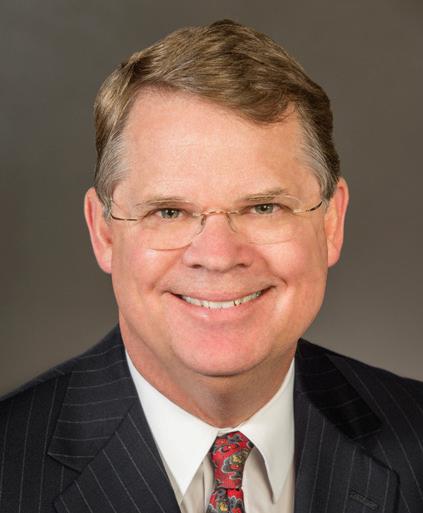

CVMA veterinarian members may access an attorney for up to 30 minutes of free legal consultation each month through the CVMA Legal Services Program. Attorneys with expertise in business law, employment law, and administrative law (Veterinary Medical Board license defense) are available to answer general questions. More information about this member benefit may be accessed on cvma.net in the Membership section under Member Benefits.


 John Carmichael, Senior Associate, Capstone Financial By
John Carmichael, Senior Associate, Capstone Financial By
Lisa is an associate veterinarian in her late 50s who wants to retire at age 67. Her spouse Mark is around the same age and currently employed. This is a case study about key challenges facing Lisa and Mark as they plan for retirement. They have little debt outside of their mortgage. They have been making regular contributions to their retirement plans but have little investing experience. They are worried about having enough money to retire. Someday they will need to replace their employment income by creating their personal pension plan.
Goals Lisa and Mark’s primary goals for retirement are having money to support their retirement lifestyle while meeting contingencies such as home repair, health care, or a change in housing. They have seen firsthand the many challenges their parents faced in retirement. They do not know what tomorrow will bring but want to be secure each step of the way.
Prioritize Lisa and Mark understand there are many retirement expenses, so it will help to prioritize the order in which expenses will be paid. They want to first make sure that their essential living and any contingency expenses will be covered. If they unexpectedly need a large sum of money, they want funds to be readily available. Their dream retirement is to have discretionary income for dining out, entertainment, and travel as they please.
Cash Flow Lisa and Mark now understand the importance of cash flow in retirement. However, they are not sure how their retirement accounts, which they have been trying to grow for many years, can provide su cient income. This is a topic of ongoing debate among advisors. The 4% Withdrawal Rule is commonly used as a “safe” rate of withdrawal from a 50/50 mix of stocks and bonds over a 30-year time horizon. For example, a $1,000,000 investment portfolio may provide $30,000–$40,000 of inflation-adjusted annual income.
This approach may not provide enough retirement income. Funds in Lisa and Mark’s portfolio are intended to remain in place (illiquid) to create an income stream. Withdrawing funds for any reason, including an emergency, would provide less income. There are additional consequences to relying on investment return to fund most retirement expenses. Lisa and Mark may be forced to take a cautious investment approach to minimize portfolio loss, which may result
in a marginalized retirement lifestyle. The persistent psychological e ect of worrying about investment returns to fund even basic living expenses should not be underestimated.

Organize It may be helpful for Lisa and Mark to organize their income plan by setting up buckets of money to match the corresponding expense. For example, they want their basic living expenses to be funded with dependable monthly income. Social Security will fund at least a portion of their living expenses. Bucket #1 could contain funds from Social Security and other forms of dependable income for basic expenses.
If there is a gap between basic living expenses and income from Social Security, Lisa and Mark could explore options to convert a portion of their retirement savings to an income-producing asset. Insurance products such as annuities can be used to provide guaranteed income for life. If Lisa or Mark were to pass, there may be a reduction in income from Social Security. Life insurance or an annuity could replace lost income. Lisa and Mark could also draw extra income from their investment portfolios, but that may not provide the safety they want.
Father Time As they age, a time may come when Lisa and Mark lose the ability to make sound financial decisions. They do not want to burden their children to help with their finances. They may consider automating at least their basic expenses to account for a loss of mental capacity.
Lisa and Mark can explore options to build a reserve fund to help meet an unexpected expense. Examples of funding options that can provide liquidity are cash, home equity loans, and life insurance. Life insurance could provide tax-free income and is an increasingly popular way to fund longterm care needs. Such a contingency fund could be Bucket #2.
Lisa and Mark can enjoy peace of mind that their most important expenses will be covered regardless of what happens in the stock market. Since their basic living and discretionary expenses are not tied to the stock market, they may have the flexibility to be more aggressive with their investment portfolios. They need to decide an acceptable level of risk in exchange for the possibility of a higher return and withdrawal rate. Discretionary funds may be labeled Bucket #3. If funds are needed to supplement Bucket #1 for basic expenses, perhaps to cover the rising cost of goods, Lisa and Mark could take funds from Bucket #3.
Timing Matters Retiring in a decade of poor stock market returns could negatively impact the quality of Lisa and Mark’s retirement (sequence of return risk). They may depend on their investment portfolio to provide income over a 30-year time horizon. However, if they take income from an investment portfolio that is already losing value over a prolonged period, they may not have enough income to achieve their retirement goals. The risk of poor market performance further illustrates the importance of not relying on a volatile asset to fund their basic living expenses. They could help protect themselves in advance by withdrawing only the minimum from their investment accounts
(required minimum distributions) and rely on Bucket #1 and possibly an additional cash reserve bucket for living expenses.
Assessing Risk Lisa and Mark have several options to create a retirement income plan that can meet their needs. Common vehicles to provide income are a diversified investment portfolio and insurance products such as annuities and life insurance. Insurance products may provide guarantees and a financial safety net, but there may be some risk. Insurance products such as annuities typically o er the stability of fixed payments but may not keep up with inflation. Conversely, an investment portfolio has the potential to increase in value and provide higher income but comes with a risk of investment loss. Lisa and Mark may decide on a plan that blends a suitable safety net and potential for investment growth.
Next Steps Lisa and Mark may reduce the stress of preparing for their retirement by understanding and preparing for the challenges ahead. While it is important that they continue to add funds to their retirement plans, it is equally important that they set up their buckets now to create future income streams. By adding a suitable measure of safety to their income plan, Lisa and Mark can have peace of mind that they will have funds to enjoy their retirement.
Mr. Carmichael is a senior associate with Capstone Financial and strategic partner with VISC, who handles life and disability insurance for CVMA members. John has enjoyed working exclusively with the veterinary community for over 12 years. He is known for his easygoing style and focus on education to help empower his clients to make informed decisions about their life and disability insurance programs. His commitment to conducting business with honesty and integrity is etched in the famous quote, “People don’t care how much you know until they know how much you care.” Mr. Carmichael can be reached at 800.544.6003 or at jcarmichael@capstonefinancial.net. (CA license #0F14121)
Why choose Gatto McFerson to conduct your practice valuation?
• We have valued over 315 veterinary practices and clinics
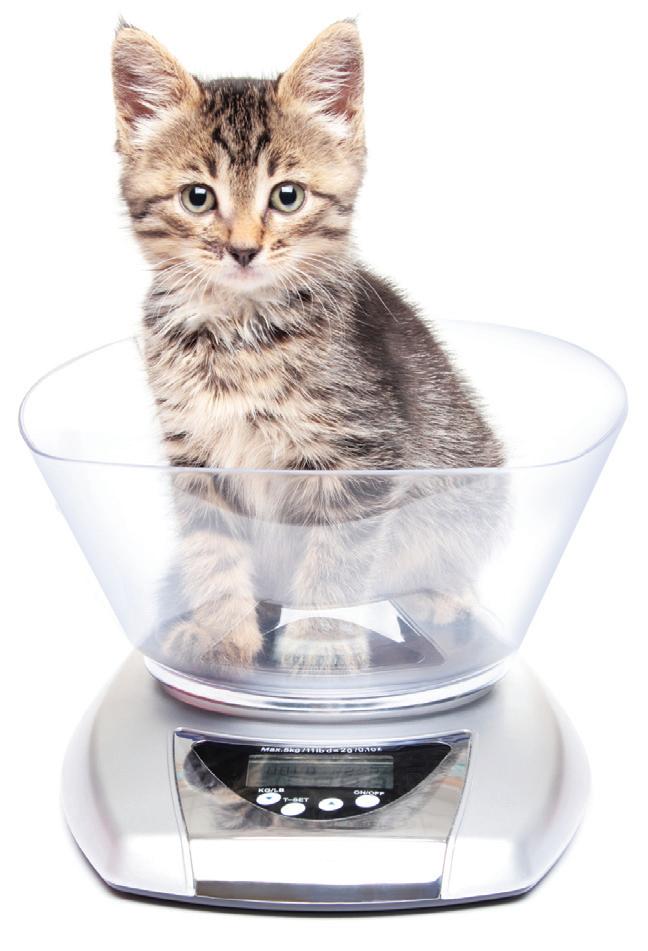
• We have the tax expertise you need when buying or selling
• We are Accredited in Business Valuations, a certification that only CPAs can hold
• We are an independent adviser with no financial stake in the transaction
We are experts in all aspects of:
• Buying and selling a veterinary practice or clinic
• Facilitating associate buy-ins
• Preparing an exit strategy
• Creating an estate plan
• Increasing the value of your practice
To maximize value and minimize taxes, contact:
Lou Gatto, CPA lou@gattomcferson.com
Tom McFerson, CPA, ABV tom@gattomcferson.com
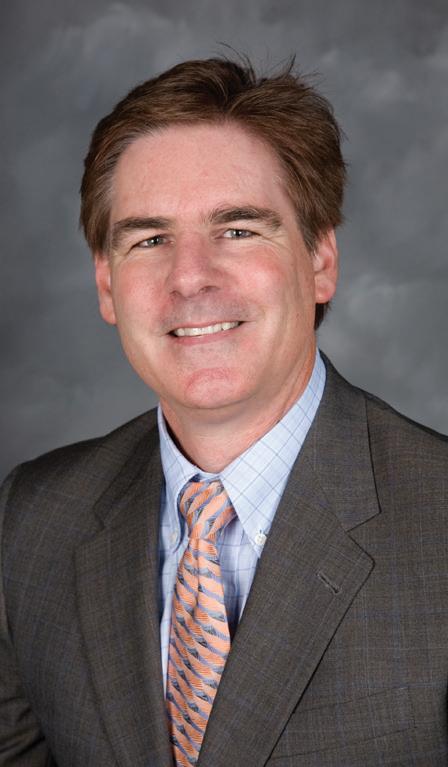
Rabbit Hemorrhagic Disease (RHD) is a Regulatory Condition in California, reportable within two days of discovery or suspicion. Rabbit Hemorrhagic Disease Virus serotype 2 (RHDV2) has been detected in domestic and/or wild rabbits in seven Southern California counties: Kern, Los Angeles, Orange, Riverside, San Bernardino, San Diego, and Ventura. RHD is prevalent in these counties, thus requiring limited regulatory action (reporting, quarantine, and response). The focus of the California Department of Food & Agriculture is prevention of RHD through education of owners on how to best protect their rabbits through biosecurity and infection control measures. Test-positive domestic rabbits are quarantined, and owners are provided information on how best to reduce the spread of the virus. RHD has been confirmed in domestic rabbits at a total of 51 property locations in Southern California since July 2020. The most recent case in Ventura County was in feral domestic rabbits.
RHDV2 is a serious and extremely contagious caliciviral disease of rabbits and hares. Morbidity and mortality rates are high in unvaccinated animals; in some groups of infected rabbits, most or all may die due to internal hemorrhaging and liver impairment. RHDV2 is a non-enveloped virus and is therefore very persistent in the environment, is spread by fomites (in addition to direct contact), and is resistant to inactivation by some disinfectants. E ective disinfectants include 10% bleach (sodium hypochlorite), 1% VirkonTM-S (potassium peroxymonosulfate), RescueTM (accelerated hydrogen peroxide), and several others.
In the current outbreak, the reported average mortality has been about 60% (range 20 to 100%). Rabbits of all ages are a ected by RHDV2. The disease has been known to cause dramatic declines in some wild rabbit populations.
The California State Veterinarian, Dr. Annette Jones, recommends caution for California rabbit exhibitions and shows, urging that all rabbit exhibitions practice good biosecurity and health screening of all participating rabbits.
Restrictions on rabbits moving into California are also in e ect. CDFA requires a Certificate of Veterinary Inspection for rabbits from a ected states, with specific certification statements, issued by an accredited veterinarian who has inspected the rabbits within 72 hours of shipment. The disease has now been detected in wild and/or feral, and/ or domestic rabbits in most western U.S. states and is now considered stable endemic in most of those states. The following is a link to USDA’s interactive disease map: https:// usda-aphis.maps.arcgis.com/apps/webappviewer/index. html?id=37791da88ef04cd08404a5794aaf0be3
Rabbit owners are urged to protect their animals by preventing contact with wild rabbits and jackrabbits and, if possible, to keep domestic rabbits indoors. House outdoor rabbits o the ground when possible. Owners are also asked to practice biosecurity to prevent accidentally spreading the RHDV2 virus to their rabbits. Avoid feeding hay grown or stored outdoors in areas where wild rabbits are a ected. Healthy rabbits can spread the disease, so rabbit owners should avoid direct or indirect contact between their animals and other rabbits.
There is no licensed RHDV2 vaccine approved for use in the United States; however, CDFA is allowing California-licensed veterinarians to import European vaccines to protect against RHDV2. Veterinarians may send an email to AHBFeedback@ cdfa.ca.gov to receive an approval letter and instructions on how to apply for a USDA import permit.
Please report dead domestic rabbits suspected to have died from RHD to CDFA at 909.947.4462. Refer to our webpage for more information on the disease, preventive biosecurity measures, cleaning, and disinfection: https://www.cdfa. ca.gov/AHFSS/Animal_Health/RHD.html
Report dead wild rabbits to the California Department of Fish & Wildlife at 916.358.2790 or https://wildlife.ca.gov/ Conservation/Laboratories/Wildlife-Health/Monitoring/ Mortality-Report.
Kern 5 December 2020, April 2021
Los Angeles 16 November 2020, January through May 2021
Riverside 14 November and December 2020, January through June 2021
San Bernardino 5 July and September 2020, January and March 2021
San Diego 6 March through May 2021
Ventura 5 March through May 2021
Total 51
Pursuant to the passage of California Senate Bill 142 (SB 142) in 2020, the law outlines specific requirements that California employers must provide to accommodate the childcare-related expression of breast milk in the workplace.
Prior to the passage of SB 142, California Labor Code section 1030 already made a general declarative statement about lactation accommodation:
Every employer, including the state and any political subdivision, shall provide a reasonable amount of break time to accommodate an employee desiring to express breast milk for the employee’s infant child each time the employee has need to express milk. The break time shall, if possible, run concurrently with any break time already provided to the employee. Break time for an employee that does not run concurrently with the rest time authorized for the employee by the applicable wage order of the Industrial Welfare Commission shall be unpaid.
SB 142 added Section 1031 to the Labor Code, which in summary specifies the following:
An employer shall provide an employee with the use of a room or other location for the employee to express milk in private. The room or location may include the place where the employee normally works if it otherwise meets the specified requirements below.
The lactation room or location may not be a bathroom and must be in close proximity to the employee’s work area, shielded from view, and free from intrusion while the employee is expressing milk. The room or location must be safe, clean, and free of hazardous materials, include a surface to place a breast pump and personal items, and provide a place to sit. Additionally, it must provide access to electricity or alternative devices, including, but not limited to, extension cords or charging stations, needed to operate an electric or battery-powered breast pump.
The employer must also provide access to a sink with running water and a refrigerator suitable for storing milk in close proximity to the employee’s workspace. If a refrigerator cannot be provided, an employer may provide another cooling device suitable for storing milk, such as an employer-provided cooler.
Where a multipurpose room is used for lactation, among other uses, the use of the room for lactation shall take precedence over the other uses, but only for the time it is in use for lactation purposes.
The law does provide some limited exemptions for employers to comply with the aforementioned provisions. If an employer with fewer than 50 employees can demonstrate that a requirement would impose an undue hardship by causing significant di culty or expense when considered in relation to the size, financial resources, nature, or structure of the business, then the employer may be exempt from the requirements.
Also, any employer who can demonstrate that providing lactation-related break time seriously disrupts workplace operations may be exempted from providing breaks above and beyond the standard breaks a orded to all employees under California law.
The law prohibits employers from discriminating or retaliating against employees who exercise or attempt to exercise their lactation rights.
As of January 1, 2020, Section 1034 was added to the Labor Code to require employers to develop and implement a written lactation accommodation policy that must include: a statement about an employee’s right to request lactation accommodation, the process by which the employee makes the request, a declaration of the employer’s obligation to respond to the request, and a statement about an employee’s right to file a complaint with the Labor Commissioner for any violation of a right under this chapter.
The employer must include the policy in an employee handbook or set of policies that the employer makes available to employees and distribute it to new employees upon hiring or when an employee makes an inquiry about or requests parental leave.
Visit the California Department of Industrial Relations Lactation Accommodation Information page for more information and frequently asked questions at dir.ca.gov/ dlse/Lactation_Accommodation.htm.
This article is for informational and general educational purposes only. It is not intended to take the place of legal advice nor should it be considered as a legal interpretation. Although significant effort has been made to ensure the accuracy and completeness of the information at the time of publication, the CVMA shall not be responsible for any errors or omissions, or any agency’s interpretation, application, or enforcement of the information presented herein.

· Completing a practice appraisal is a good first step to future planning. What’s the number one factor effecting whether a practice sells or lingers on the market?
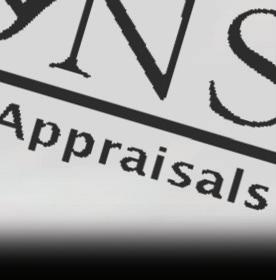





Educate
· Learn what drives profitability, what you can do about it, and how it affects the value of your business.
C-(Sell)-e-brate
· Despite concerns over the economy, the veterinary industry is alive and well, and buyer demand for practices remains strong. If you are thinking now might be the time to sell, give us a call for a FREE confidential consultation on your options.
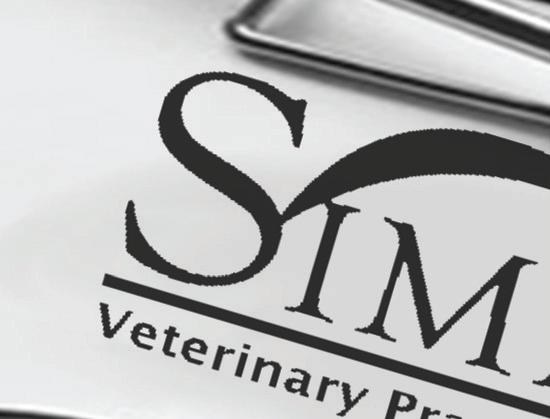
Seeavailablelistingsatwww.simmonsinc.com



As part of its mission to train veterinary professionals to protect animal welfare and public health during declared states of emergency, the California Veterinary Medical Reserve Corps (CAVMRC) is pleased to offer a low-cost, one-day classroom continuing education course to veterinarians, RVTs, and veterinary assistants/students.
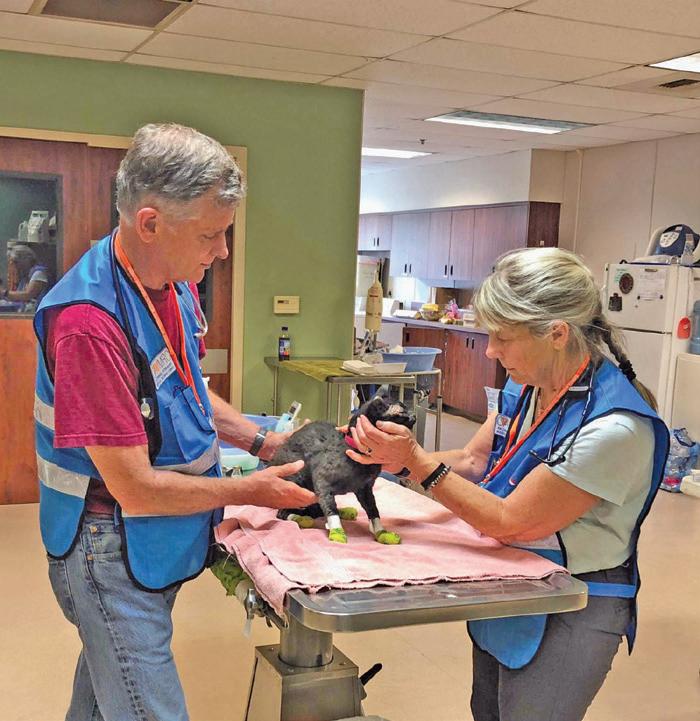
The Animals in Disasters –Common Medical Conditions course will be offered in person on November 7, 2021 in Santa Rosa, CA. This course offers 6 CEUs and provides detailed information on
emergency/critical care topics that can benefit you in everyday practice as well as during a disaster response.
SAVE THE DATE
November 7, 2021
By registering for this course, you are also registering to become a volunteer member of the CAVMRC if you are not already a current member. CAVMRC membership is free and participation is strictly voluntary. This course is only available to CAVMRC members.
If state or local mandates restrict public gatherings, the CVMA will instead offer this course in live and interactive online presentations.
Registration for this course will open in early August; watch your email for details.
The CVMA extends our sincere sympathy to the friends and family of those remembered.
Dr. Wilfred Harry Bentham, a CVMA Life Member, passed away on February 11, 2020. Dr. Bentham graduated from the Colorado State University’s School of Veterinary Medicine with his DVM in 1965. After graduating, Dr. Bentham worked at his father’s existing practice at Central Veterinary Hospital in Fremont, where he focused primarily on large animal veterinary services. Dr. Bentham introduced the practice of 24-hour care for hospitalized pets to the Fremont area. He later bought the practice and worked there for 55 years until his death.
Dr. Michael Butchko, a CVMA Life Member, passed away on February 25, 2019. Dr. Butchko obtained his DVM from the UC Davis School of Veterinary Medicine in 1964, after which he moved to Riverside and began working at West Riverside Veterinary Hospital. The practice was later purchased by Dr. Butchko in 1978 and is now being operated by his son.
Dr. Evelyn Loretta Dean, a CVMA Life Member, passed away on May 1, 2021. In 1953, Dr. Dean became the first woman veterinarian to graduate from the UC Davis School of Veterinary Medicine. Dr. Dean spent four years working mainly with dairy cattle in a veterinary practice at Pt. Reyes, and then spent the rest of her life working in Sutter County, where she was born and developed her initial love of cattle and horses.
Dr. Pierre A. Lieux, a CVMA Life Member, passed away on June 28, 2020. Dr. Lieux earned his DVM at the National Veterinary School of Alfort in France with a focus on equine veterinary medicine. Dr. Lieux later established an equine practice in Southern California, where he worked until his retirement in 1999. An advocate for organized veterinary medicine, Dr. Lieux served on the executive board of the Southern California VMA and chaired its committee on equine sterility. He also served as an equine consultant for the California Veterinary Medical Board and was a member of the American Association of Equine Practitioners and the Society for Theriogenology. Dr. Lieux received the CVMA’s Dan Evans Memorial Award in 1995.
In memory of deceased members, the CVMA makes a donation to the California Veterinary Medical Foundation, whose mission is dedicated to “nurturing kindness, education, and well-being for all animals, people, and the environment.”
The Veterinary Medical Board’s regulatory proposal to amend Title 16, Section 2069 of the California Code of Regulations was approved by the Office of Administrative Law and filed with the Secretary of State this past March.
The regulatory changes—effective July 1, 2021— relate to clinical care that may be rendered by Registered Veterinary Technicians (RVTs). Specifically, they do the following:
Authorize an RVT to provide either lifesaving aid or emergency treatment to an animal;
Strike the terms for the administration of pharmacological agents and instead authorize an RVT, after direct communication with a veterinarian licensed or otherwise authorized to practice in this state, to (1) administer a drug or controlled substance to prevent or control shock, and (2) manage pain or sedate an animal for examination or to prevent further injury, or to prevent suffering of an animal, up to and including euthanasia;
Add a new provision indicating that, when an RVT cannot establish direct communication with a licensed or authorized veterinarian, the RVT may administer the drug or controlled substance in accordance with written instructions established by the supervising veterinarian or, in the case of a sanctioned rodeo or other sporting event, the veterinarian charged with the responsibility to provide treatment to the animals at the event; and
Make other minor and technical revisions to the regulation
To view the adopted regulations and revisions, visit vmb.ca.gov and click on Approved Regulations under Laws and Regulations.
Mix business and pleasure by getting your CE in beautiful Squaw Valley on October 9–10, 2021. Spend your mornings learning the latest information on Emergency and Critical Care and spend the afternoons adventuring in the Lake Tahoe region.

MEET OUR SPEAKER
Amy Newfield, MS, CVT, VTS (Emergency and Critical Care)
Amy Newfield is a project manager for training, health, and wellness at BluePearl Veterinary Partners and the owner of Veterinary Team Training. After working in general practice for many years, she found her passion in emergency medicine and went on to obtain her VTS in Emergency and Critical Care. She has held several board positions in the Academy of Veterinary Emergency and Critical Care Technicians and Nurses, including serving as its president. Her new focus is on team and leadership development. She is a published author on over 20 subjects.
Saturday, October 9
Is It an Emergency?
ER Cases from the Trenches
CPR: Basic Life Support
CPR: Advanced Life Support
Sunday, October 10
Shock and the Initial Stabilization of the Emergency Patient
Seizures!
Heatstroke
Parvovirus: Anything New?
Having completed their veterinary education which included an unusual year of online education during the COVID-10 pandemic, the senior class students from the UC Davis School of Veterinary Medicine and WesternU College of Veterinary Medicine celebrated their hard work and resiliency at their respective graduation ceremonies. UC Davis’ commencement took place in-person on May 21 during a small ceremony exclusive to the graduating class and a few faculty administrators. The WesternU commencement was held virtually on May 20 and live-streamed to the world.
CVMA student award recipients were notified of their awards in three categories: practice excellence, lifelong learning, and the California Veterinary Medical Foundation (CVMF) award.
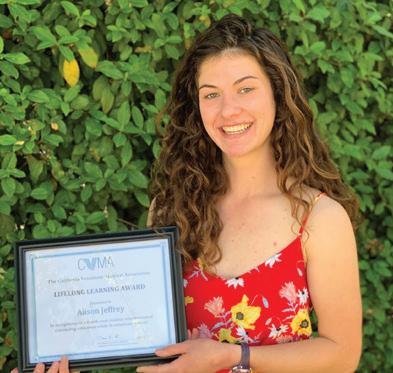
Congratulations, 2021 Scholarship Winners!


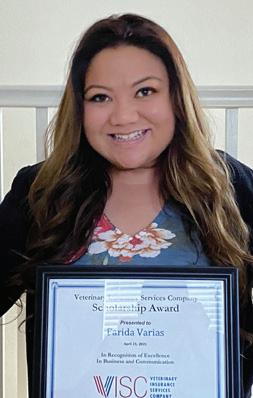
VISC Scholarship Awards are awarded to fourth-year students who have demonstrated outstanding business and communication skills throughout veterinary school.
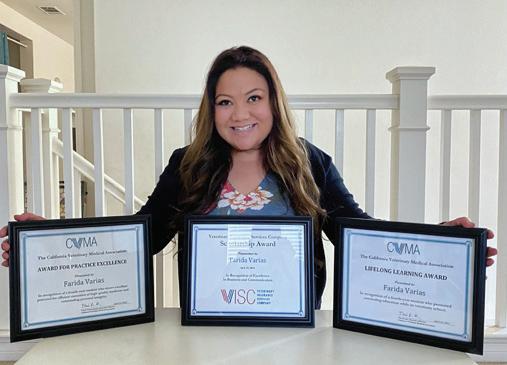
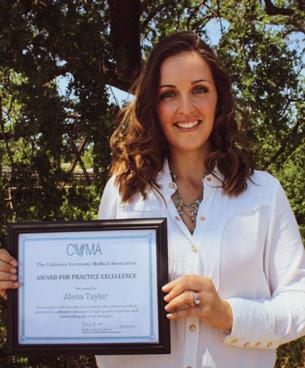


The CVMA additionally congratulates the following recipients of the CVMF/VISC Student Scholarship Award and the Ron Faoro, DVM, Student Scholarship Award.
The California Veterinary Medical Foundation (CVMF), in partnership with the CVMA’s insurance brokerage company, the Veterinary Insurance Services Company (VISC), established this scholarship award through donations from VISC.
We are pleased to announce the seven veterinary students who were awarded scholarships of $1,000 each in June 2021.
Congratulations to the following students:
UC Davis
• Peter Ellis
• Christine Haake
• Joie Lin
WesternU
• Sarah Michalak
• Ninon-Claire Takeshita
• Christopher Morrill • Adam Wiegand
RON FAORO, DVM, STUDENT SCHOLARSHIP AWARD
This award was established in memory of past CVMA President Dr. Ron Faoro and is administered by the CVMF. Recipients of this award are presented with $2,500 scholarships for their role in leadership.
Congratulations to the following students:
UC Davis
• Megan Dietz WesternU
• Elise Ru oni
LIFELONG LEARNING AWARD: ALISON JEFFREY CVMF AWARD: JORDANN SINAI JAKE STOKES UC DAVIS PRACTICE EXCELLENCE AWARD AND CVMF AWARD: ALENA TAYLOR PRACTICE EXCELLENCE AWARD AND LIFELONG LEARNING AWARD: FARIDA VARIAS FARIDA VARIAS WESTERNUChildren often learn by copying their parents. Dr. Analisa Edell (DVM, 2018) often accompanied her mother, a home healthcare nurse and single parent, on her rounds.
“It was my first job. I got paid a dollar for going with her to see patients,” Dr. Edell recalled. She would help with equipment, or simply entertain her mother’s patients. “I grew up around medicine—literally.”
Dr. Edell also grew up with a love for animals. A chance encounter with a veterinarian while horseback riding sparked an interest in being an “animal doctor.” She is now an intern at Wildlife Safari in Winston, Oregon and an instructor at WesternU. The college partnered with Wildlife Safari and the Oregon Department of Fish and Wildlife to launch the internship in 2019. The unique internship provides both zoo and wildlife experience, as well as the opportunity to teach, whereas most internships have a singular focus. Dr. Edell is only the second intern to take part in the program.
Zoo medicine fascinates Dr. Edell. “Every day is different, because you are working with such a broad array of species,” she said. “One day you can be working on an itty bitty budgie; the next day it might be a giraffe. I love the fact that no two days are alike.”
Dr. Edell is also an advocate for conservation, and Wildlife Safari and most other zoos have embedded conserving species into their mission.
“Zoos have species survival programs, which is a close monitoring of the genetics of the breeding populations that we have,” she said. “Some of those programs have actually been able to reintroduce animals back into the wild. The chance to do that is really exciting to me.”
Dr. Edell is working with first- and second-year students in Problem-Based Learning (PBL), which she believes provides a great pathway to veterinary knowledge. “As you get older, the way you learn changes a little bit. You end up doing a lot of your learning on the job,” she noted. “I definitely believe that [PBL] made it easier for me to remember things. PBL offers a unique style of learning that allows you to become involved in cases.”
Those early PBL lessons at WesternU, where students are given a problem and asked to work together to diagnose and solve, became the cornerstone of her veterinary knowledge. They now help her acquire knowledge while on the job.
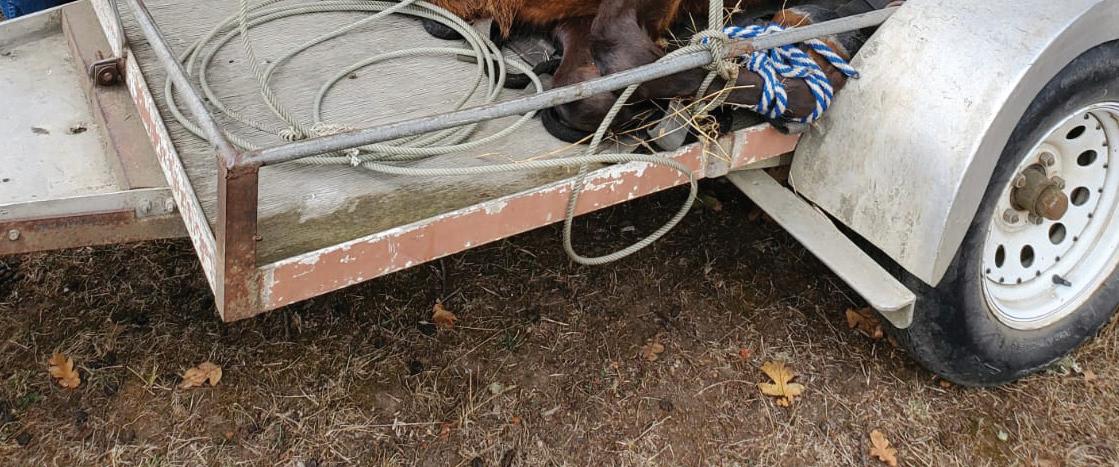
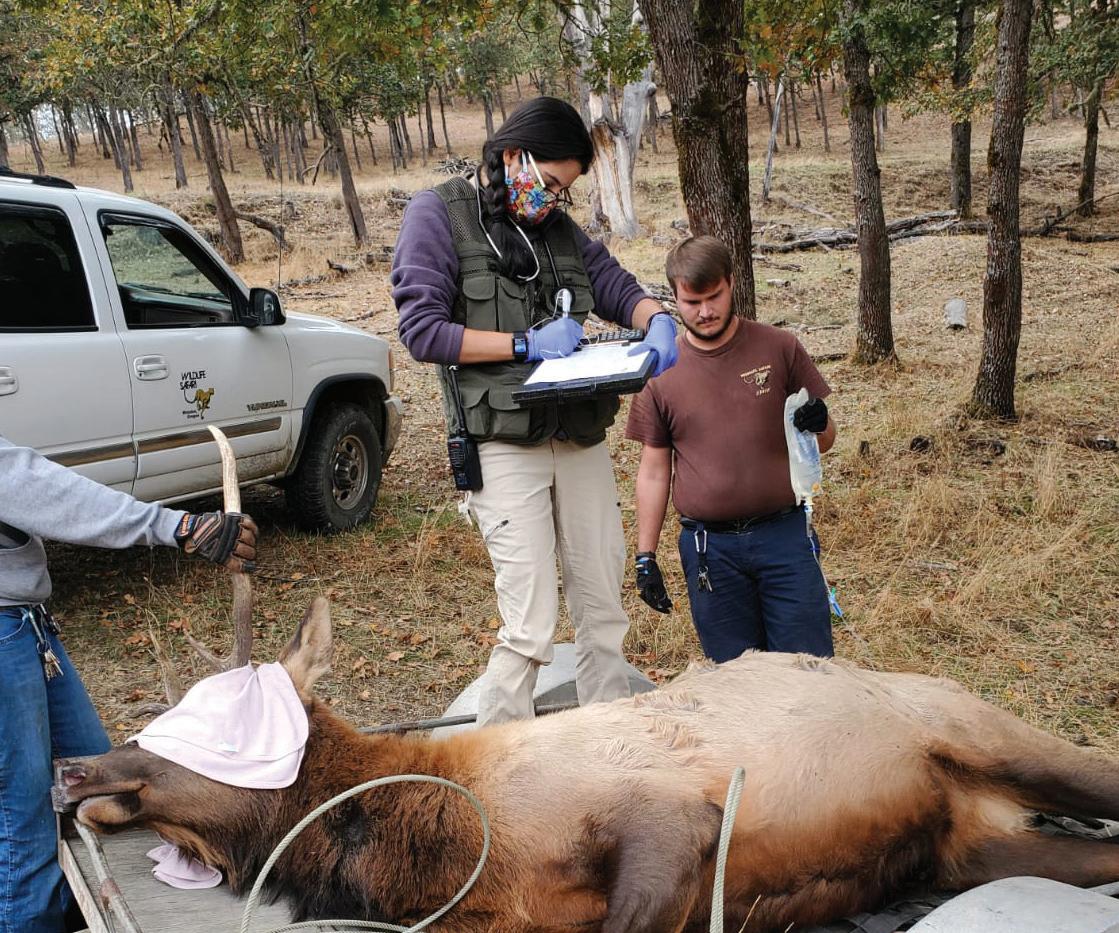
“There’s not as much information out there for zoo animals,” Dr. Edell said. “You are doing a lot of research, attempting to extrapolate information available from small animal medicine. I think there are a lot of parallels between what drew me to the curriculum at WesternU and what is drawing me to this career path.”
As Dr. Edell’s internship winds down this summer, she’s sending out applications for residencies and other internships. Her goal is to become board-certified in zoo medicine and continue that work.
Dr. Edell credits her many mentors, from the faculty at WesternU and the staff at Wildlife Safari to her mother, for planting the seeds and revealing to her a career path that matches her interest. “I’ve been blessed by having so many wonderful mentors,” she emphasized.
At less than two weeks old, Forrest, the great horned owl, was a ball of fluff when he came into the care of the California Raptor Center (CRC) at UC Davis. Found in a small northern California town, Forrest had been cared for by a local veterinarian until his growing needs as a rapidly developing owlet led the vet to seek expert help.
Since 1972, the CRC has provided specialized rehabilitative care to injured, orphaned, and sick birds of prey. CRC volunteers, staff, and clinicians at the UC Davis Veterinary Hospital’s Companion Exotic Animal Medicine and Surgery Service work together to provide cutting-edge veterinary care and raptor-specific expertise to the 100 to 200 patients brought to the Center annually by the general public, state and local wildlife agencies, and animal care professionals.
Forrest joined many other young raptors in the CRC nursery that had arrived during that year’s “baby season,” the statewide, springtime surge of baby animals dropped off at wildlife centers. Baby season accounts for the bulk of the Center’s patients, beginning in late winter or early spring usually with an owl chick from a notoriously early breeder, such as barn owls or great horned owls. From there, the incoming tide includes numerous hawk species, American kestrels, northern harriers, and white-tailed kites. On rare occasions, turkey vultures and spotted owls make appearances as well.
Baby season at the CRC requires all hands on deck. With limited funding and only one full-time staff member, a cadre of dedicated volunteers carry out daily operations, including time- and skill-intensive nursery care. The chicks vary in age and needs. Newly hatched chicks, unable to stay warm on their own, require heated brooders and multiple daily feedings. Older nestlings, some nearly fledged, are able to regulate their body temperatures and eat independently. Some chicks have injuries, often secondary to the plunges that brought them down from their nests. Others may be ill. All of them require individualized, species-specific care.
Part of the CRC’s care for young great horned owls involves a surrogate adult of the species that models appropriate behaviors. Forrest was placed with a surrogate male known as “Puff Daddy” (aka “Puffy”) because the staff, concerned that the owlet may have imprinted on his rescuer, hoped that Puffy could turn his behavior around. Puffy is one of approximately 37 non-releasable raptors that reside at the CRC and assist with either the education programs or the center’s rehabilitation mission.
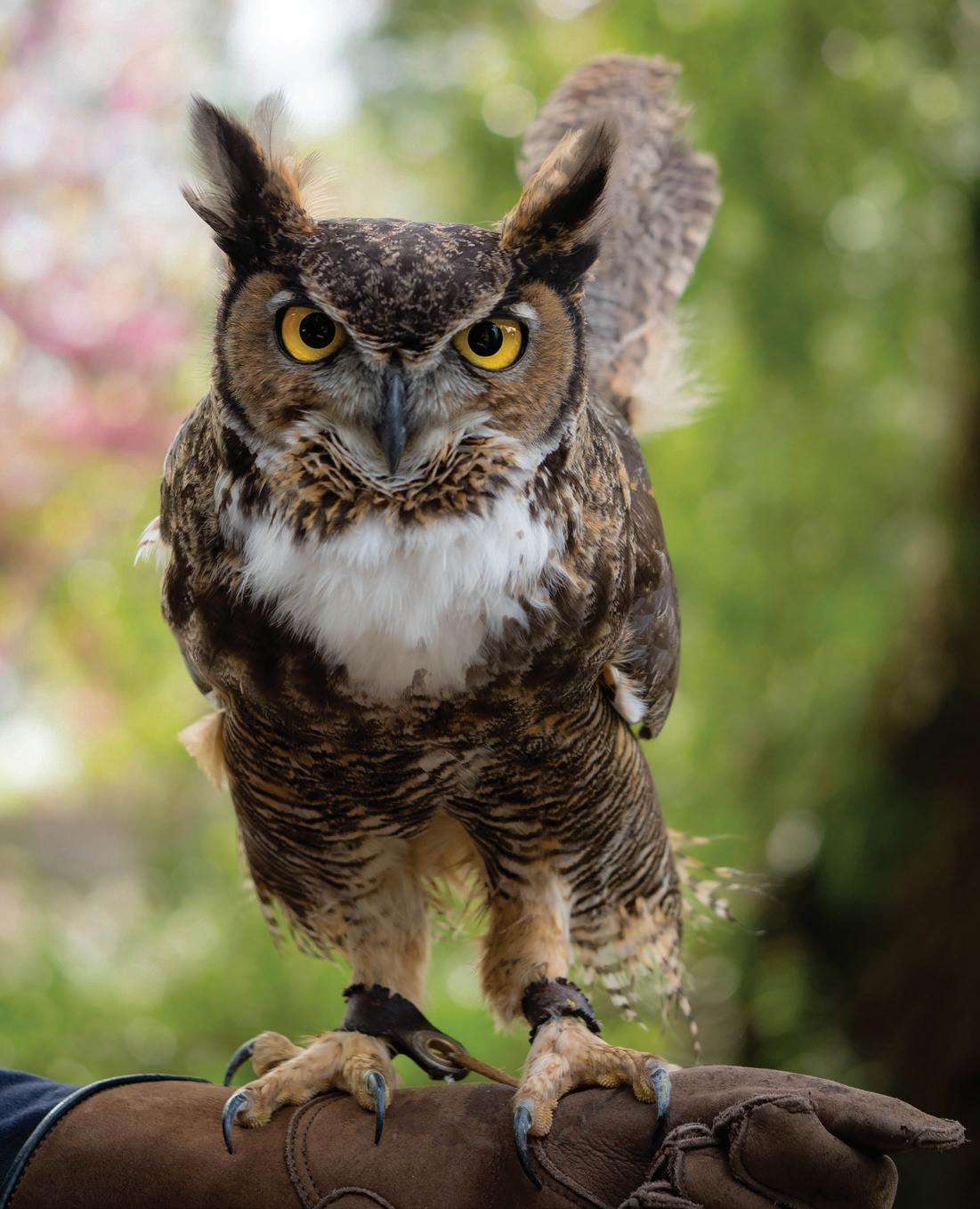
While volunteers provide human power and resident raptors like Puffy provide bird power, the CRC relies on individual donors and philanthropic organizations to support its operations, including staff salaries, medical care, and supplies. Due to COVID-19, the CRC entered 2021 facing a budget shortfall. It has always taken a village to navigate the tumults of baby season; now, more than ever, it will take a village to bolster the CRC through the pandemic’s economic fallout.
Unfortunately for Forrest, the CRC’s interventions came too late; despite so much one-on-one care from his rescuer during critical stages of development, Forrest had imprinted on humans. Even Puffy could not reverse this permanent behavioral change. Reliant on humans, Forrest could not be safely released into the wild, so he found a permanent home at the CRC as an education ambassador. In his six years at the Center, he has charmed thousands of children and adults with his regal appearance and exuberant hooting, providing people the opportunity to learn about a great horned owl up close—and teaching an important lesson about the value of wildlife centers like the CRC.
Place your ad in the Career Center at cvma.net. There are two options for classified advertising:
1. Online advertising
2. Online and in one issue of the CaliforniaVeterinarian
CVMA Members NonMembers Online only
30 days online $149 $199
60 days online $249 $299
90 days online $349 $399
Online and in one issue of the California Veterinarian
60 days online + one issue of the California Veterinarian $299 $349
90 days online + one issue of the California Veterinarian $399 $449
POST AN ANONYMOUS AD OR RESUME
Resume – Post a confidential resume. Go to cvma.net. Click on the Resources tab then Classifieds in the right menu to get started.
Ad – Place a confidential ad by creating an anonymous email address and using it when posting your ad.
Natomas Veterinary Hospital is an established, busy, familyoriented small animal practice. Natomas is an up and coming, trendy, suburb located north of downtown Sacramento and minutes away from Sacramento International Airport. The area is the perfect fit for an active lifestyle—2 hours away from Tahoe and the beautiful California outdoors, 1 hour from Napa wine country and 15 minutes from the state capital with tons of local events. This is Kings Country! We are highly valued by the community for our quality and compassionate care. We work closely with local specialists to practice the gold standard. We are well equipped with a full IDEXX laboratory, computerized records with home access, digital radiographs (conventional and dental). Ideal candidate would be a team player, supportive mentor, strive to perform high quality medicine, love complex cases, competent in basic surgery/dentistry, and focused on creating a warm, family experience with clients. We aim to provide our team with an optimal work/life balance. No on-call or after hour emergencies. Flexible work schedule of 4 days per week with rotating Saturday (eventually) to maximize your time o . Salary of $125k+ plus production bonus and competitive benefits (Health/Dental/Vision/
*Price includes the first six lines of text. Each additional line is $10/$11 for non-members. A line consists of approximately 50 characters.
**If you wish to place a print ad only, contact Laura Phillips at 916.649.0599 or classifieds@cvma.net.
If you have any questions, please contact customer service at 860.437.5700, clientserv@yourmembership.com, or classifieds@cvma.net.
DEADLINE DATES FOR AD SUBMISSIONS IN THE CALIFORNIA VETERINARIAN:
Issue
Jan/Feb
March/April
Deadline
December 5
February 5
May/June April 5
July/Aug June 5
Sept/Oct August 5
Nov/Dec October 5
If your ad is received after the deadline, it will go into the following month’s California Veterinarian. After the deadline, the CVMA cannot alter or cancel ads. The CVMA reserves the right to edit copy and does not assume liability for contents of classified advertising. Prices subject to change without notice.
Matching 401K/CE allowance/Dues/Licenses). If interested please email your CV to pmnatomasvet@gmail.com.
It’s not cold here! Come and join the team at Citrus Heights Pet Hospital located just an hour and a half northeast of San Francisco and just west of the Sierra Mountains. Our small animal AAHA accredited practice is located in Northern California minutes from the state capital of Sacramento. Enjoy year round outdoor activities, access to the arts all without shoveling your car out of yet another snowdrift. Our growing practice has been serving our community for more than 60 years and is well equipped with up to date in house lab, digital imaging, access to board certified specialists, complete surgical and dentistry suites. Comprised of Mid-Western Veterinarians we are seeking an associate that is looking for work life balance. We o er a generous compensation package and benefits that include sign on bonus, paid vacation, holiday, sick leave, CE allowance, DEA license renewals, AVMA and CVMA fees, VIN membership, plus health insurance. New Grads are encouraged to apply. Email ebrickson@chpethospital.com.
Village Square Portola Valley Veterinary Hospital is seeking an enthusiastic associate veterinarian to join our team of doctors. Village Square Portola Valley is a full-service animal hospital whose mission is to provide the highest
standard of quality and compassion in veterinary care for our clients and their pets. We are an independently owned non-corporate practice in an a uent area. To provide excellent care we are well equipped with in house labs, ultrasound, and both dental and digital radiograph machines. We also provide a fully equipped surgery suite. Our well-trained and compassionate sta are here to support you in providing the very best options for your clients and patients. We have a loyal client base and a constant influx of new clients. We are open Monday through Friday 8am to 6pm and Saturdays 9am to 1pm, appointments start at 9am. No after hour emergencies. We o er competitive compensation enabling an experienced veterinarian to make between $120,000.00 to $150,000.00 per year in salary with additional production bonuses paid bimonthly. In addition, a comprehensive benefit package, including medical (dependents included), dental and paid vacation/sick days, 401K with a 4% match, generous employee pet discounts, continuing education allowance, reimbursement for membership dues, license fees, and uniforms are available. New graduates are encouraged to apply. At Village Square Portola Valley Veterinary Hospital, we take the health and well-being of our employees, clients and patients seriously. Email kfvsvh@gmail.com.
Modesto, CA practice seeking part/full time/relief accredited DVM w/licensure in good standing (prefer at least 2 years of exp). Friendly o ce w/great teamwork. General surgeries/ wellness procedures. Salary dependent on experience/skills, estimated $900-1100 per shift (5-8 hours). Need ability to develop rapport w/clients, determine their needs with a friendly attitude. Excellent client communication skills are a must. Our patients’ health is our top priority and excellent customer service is our goal. Email gillvet24@hotmail.com.
Seeking an associate veterinarian (experienced or new grad) to join our team. Opportunity for future ownership. You will be able to practice high-quality/progressive medicine in our busy small animal practice (we also see exotics). We believe in modern medicine integrated with alternative therapies. And we are always open to and encourage new ideas. The cases you will manage range from preventative care to internal medicine, surgery, dentistry and emergency services. Our experienced team is friendly and tight-knit. We work together on di cult cases to create the best plan for our patients/clients. We are located in a beautiful and scenic small town in northern CA, with a relatively low cost of living. We have plenty of outdoor activities, wine tasting, artisans and local farmers to keep you entertained on your days o . It is also fairly close to major metro areas, the redwoods and the coast. Flexible 4-day, 40-
hour workweek. We believe in a good work/life balance. Competitive salary 120,000+ (plus production) with other bonuses, benefits and incentives. Mentorship is provided if desired. SIGNING BONUS. Visit us at clearlakevetclinic. com. Starting Base Salary at $120,000 + Pro-Sal structure; signing bonus; payment and support for CA licensing if not currently licensed in the state; health/dental/vision group insurance; life insurance coverage; vacation and paid holidays; VIN, AVMA, and CVMA annual dues; DEA license; CE benefits; maternity/paternity leave if eligible; 4 day 40 hr. work week & flexible scheduling – ALWAYS 2 days o in a row MINIMUM; new & high-end equipment, including: digital xray and digital dental xray, full in-house lab, ultrasound (w/ color flow), Class IV Laser Therapy, PRP centrifuge/kits, complete monitoring equipment (EKG, BP, CO2, SP)2, continuous rectal thermometer, etc), warming systems, etc. Open to other equipment if an interest. Beautiful location with desirable cost of living; supportive team & employer! Email drdu @clearlakeveterinaryclinic.com.
Busy, growing small animal/exotics clinic in Northern California seeks to hire 1-2 Associate Veterinarians. New graduates welcome. Bilingual (Spanish) language skills a plus. In-house lab, digital X-ray, dental machine, surgical suites. In addition to our regular, expanding clientele, we work with several rescue organizations. Competitive benefits package. Salary commensurate with experience. Senior student externship/rotation possible with serious applicants. Please send resume to lori@walkerstreetvet.com.
Night hospitalist position open at PetCare! This position focuses on inpatient care and monitoring in the evenings, with some assistance to overflow emergency cases. PetCare is a large, progressive, 24-hour hospital in beautiful Santa Rosa. Our hospital includes general practitioners, emergency practitioners, and specialists. We are searching for someone who can integrate into a collaborative hospital that provides the highest quality of medicine. We have a family atmosphere and strive to have fun while doing exceptional veterinary care! The hospital itself is stateof-the-art; equipped with endoscopic and laparoscopic capabilities, a brand new GE ultrasound, and a 64-slice CT. You would be joining an amazing team that includes an Internist, 3 surgeons, an oncologist, and experienced general practitioners and emergency clinicians. Full benefits include: vacation, generous CE allowance, health insurance, dental insurance, disability, and vision insurance. Our hospital is a leading hospital for all of Sonoma County. We are located in the middle of wine country, a half hour from gorgeous beaches and redwoods. Come to a place where you can grow as a veterinarian and enjoy the amazing outdoors! For
more information or to submit a resume please contact: Dr. Kim Henry at Kimberly.Henry@vca.com.
Marysville Veterinary Hospital is seeking an FT or PT associate to help us grow our practice. The Hospital is a well-equipped paperless practice with digital x-ray, ultrasound, digital dental radiography, the latest Idexx in-hospital laboratory equipment and more. If you enjoy a varied and challenging caseload, case continuity with clients and patients, and an exceptional support sta , then you just may be the doctor we are looking for! The hospital is located 40 minutes north of Sacramento, 2 hours from Lake Tahoe, and 2 hours from the Bay Area. Compensation includes a guaranteed base salary with a production bonus. Our benefit package includes 1 month paid time o , 401K with match, CE allowance, VMB and DEA license renewals, AVMA and CVMA fees, VIN membership, plus health, dental, and vision insurance. There are no emergency duties. Come join a great team in delivering outstanding patient care, customer service, a commitment to building lasting relationships with our clients, and fostering our clients’ bond with their pets, which is the cornerstone of our hospital’s mission. Please contact Dr. Steve Sanders at 925.963.1462 or email ssandersdvm@gmail.com.
Full-time and part-time D.V.M. positions available at an established, profitable Practice. The Facility has been thoroughly remodeled, with all the most modern updates, including digital x-ray, full in-house lab and ultrasound. The Clinic is privately owned, well loved by the community and boasts an exceptional support sta . The emphasis is always on learning and quality of care. Located in the scenic Santa Cruz Mountains and with easy access to San Jose, San Francisco and the Bay Area this job comes with a most desirable lifestyle. The right candidate can expect a generous compensation package, ongoing education and an assertive career path, including ownership potential. Please send your resume to BCVet95006@gmail.com
The San Francisco SPCA is looking to welcome an emergency or emergency/gp veterinarian for our state-of-the-art AAHA Mission Campus. With a robust financial assistance program, you can provide care for many patients that would otherwise have to be turned away. To support you we o er a wide range of diagnostics and treatment options including ultrasound (stand-alone and point-of-care), flexible videoscopy, rigid videoscopy, video otoscopy, digital radiography, 2 ORs with humane-grade equipment including LigaSure and electrocautery, in house laboratory and rapid turnaround reference laboratory access. You can expect: Daytime shifts only: 8am-7pm · Emergency only or emergency/gp
combination so you can follow up on your own cases if you want · Stat radiography interpretation services · On-site pharmacy and lab as well as online pharmacy and reference lab availability · A CSR and Client Contact Center to field and process calls · Liaisons to assist with client communication and coordination · A dedicated Doctor’s Assistant for each emergency and GP doctor · Dedicated skilled RVTs for anesthesia and for ICU patients · Low-stress handling approach · Coaching and mentoring for skill-building. Facilities and equipment: ICU sta ed by an RVT 24/7 · Dedicated feline waiting room and ward · In-house pharmacy sta ed with trained, dedicated personnel · 16 exam rooms, treatment area with wet tables, dedicated surgical prep area, surgical suite, dental suite · Spacious, State-of-the-Art facility constructed in 2009 · Flexible and rigid endoscopy · Digital radiography including dental · Toshiba ultrasound machine with abdomen and cardio package · LigaSure vessel sealing device and electrocautery · Portable ultrasound machine for POCUS and sample collection · Vimago High-Definition Volumetric Imaging machine · Housed in the same expansive, beautiful facility with several SPCA programs including shelter, low cost spay/neuter, adoption, Fospice, and mobile community clinic. Benefits for FT or PT (20+ hrs): PTO accrual starting day of hire, Holiday pay, Medical, dental & vision insurance, life insurance, long-term disability insurance, tax-deferred retirement plan with company matching, pre-tax commute expense deductions, free parking on site, discounted veterinary care, employee discount on retail, pet supplies, and dog training classes, financial support and time-o for continuing education. Email aparenti@sfspca.org.
Private practice seeking two veterinarians to provide shelter medicine as well as care for our plethora of rescue accounts. We provide exceptional care to all pets through wellness exams, preventative care, and management of medical and surgical cases. Primary responsibility will be high volume spays and neuters for dogs and cats. Experience with high volume surgical care is a must. Salary is negotiable due to full or part time work. We offer a 401K plan, Health Insurance, CE, PTO and more. Please email resumes to CommunityVeterinarians@gmail.com.
Exciting opportunity to be part of a 2-doctor practice minutes from Reno, NV. Quality medicine and surgery, digital x-ray including dental, therapeutic and surgical laser, new ultrasound, in house lab capabilities. No emergency, no on call. Work-Life balance is important to our small business. We have grown to
Continued on page 46
Ellie Wattles, DVM, President, Broker
Beka Herrera, Vice President, Broker
Connie Burke, CPA, CVA, CM&AA
GREATER LOS ANGELES: Situated near all the amenities that Los Angeles has to offer in a densely populated area. Free- standing, roomy facility includes 2 exam rooms, 22 runs and 30 cages, all on a 4,000+ square foot lot with options for redesign. Equipment includes 2 anesthetic machines, IDEXX lab equipment & DR X-Ray, all owned. 2020 Gross ~$2,005,000 produced with essentially 2 full time DVMs and experienced staff. Extremely profitable practice is currently under-utilized with potential for increased services, hours, and revenues. Owner and associate open to remaining postsale, under new ownership, if desired by new buyer. N NEW LISTING! PRACTICE PRICE: $1,688, 000 REAL ESTATE FOR SALE
GREATER CARMEL: A unique community that embraces family, prosperity, and the highest quality of life. The Pet Spending Potential Index for the surrounding area is 96% higher than the national average. Well established, growing PX is in an attractive ~1,600 sq. ft. leased facility, including 2 exam rooms, 12 cages & 2 runs with room for expansion. Full service, small animal practice includes extensive equipment. 2021 projected gross ~$1.2 Million produced primarily with ~1 DVM per day and limited hours, including no weekend. . PRACTICE PRICE: $824, 500.
GREATER SACRAMENTO: Located approximately 25 miles northeast of Sacramento. Free-standing, leased facility consists of ~2,300 sq. ft with 2 exam rooms, 18 cages & 10 runs. Computerized practice includes digital X-Ray and ultrasound. 2020 Gross ~$1.28 Million. General full-service small animal hospital with special reproduction services. C CALL FOR PRICING & ADDITIONAL DETAILS
KERN COUNTY: Situated in a growing community located ~1 hour North of LA with a strong agricultural, oil & general broad economic base including a new Amazon fulfillment center. There are many nearby amenities & affordable housing. This general Small Animal practice offers an ~3,000 sq. ft. facility with 3 exam rooms, 60+ cages and 10 runs. Equipment includes ultrasound & digital X-RAY. 2020 Gross was approximately $1,074,000. Potential to significantly increase hours of operation to grow productivity. P PRACTICE PRICE: $667, 000 REAL ESTATE PRICE: $425, 000
VENTURA COUNTY: Located in a great upscale community with excellent amenities, desirable demographics & highly rated schools. Family-friendly community. Attractive and modern, ~1,800 sq. ft leased facility is strategically located in popular shopping center. Equipment includes owned Abaxis Lab and Digital X-Ray. Underutilized practice with limited DVM hours. 2020 Gross: $467,000. Practice is offered at less than a start-up NEW LISTING! PRACTICE PRICE ONLY: $250, 000
MENDOCINO COUNTY: Just 2 hours north of the San Francisco Bay Area & west of Sacramento. This area boasts spectacular scenery & distinctive wineries. Hundreds of miles of hiking trails, verdant hills & secluded lakes residents can easily find solitude & beauty. 1 PT DVM PX. ~1,500 sqft leasehold facility located in a small strip-center. 2020 Gross~ $446,000 produced with very limited hours. P PRACTICE PRICE ONLY: $120, 000
SAN DIEGO, SOUTH BAY: Well-established practice is located within a strip center with the leased facility consisting of ~1,968 sq. ft / 3 exam rooms. Exceptionally well-equipped PX including Digital X-Rays (one for body and one for dental), Color doppler ultrasound, Abaxis analyzer (all owned by the practice). 2021 projected gross over ~$2 Million. Excellent growth and profitability. C CALL FOR MORE INFORMATION S A N
A
I
O B A Y AREA: Leased, ~ 1,439 sq. ft. facility offers 2 exam rooms, large treatment area, 20+ stainless steel cages & 2 runs. Full-service PX also includes recently updated digital DR X-RAY, dental machine & 2 anesthetic machines. PX is experiencing tremendous growth year over year. 2020 Gross ~$1,015,479 produced w/ limited office & doctor hours. Exceptional profitability. P PRACTICE PRICE: $979, 400
SONOMA COUNTY: Wine country. Excellent visibility of the practice with ample parking. Practice offers personalized, quality veterinary services with reasonable fees. Very high demand for services. ~2,500 sq. ft facility with 3 exam rooms. Equipment includes X-RAY & in-house lab. 2020 gross ~$799,000. Excellent profitability. PRACTICE PRICE: $676, 000. REAL ESTATE PRICE: $675, 000.
545 Sespe Avenue Fillmore, CA 93015 Phone: 805.524.3195 Fax: 805.524.3192
E-mail: PacProInc@aol.com Website: www.pacificproinc.com
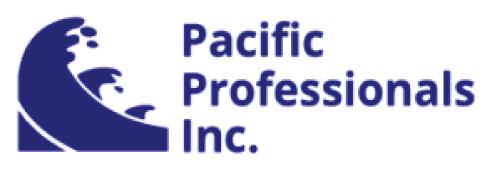
need 2 full time doctors 5 and 1/2 days a week. Experienced support sta /high retention. Buy in potential. The Lake Tahoe area awaits you on your days o . Email KMacdvm@gmail.com.
Small animal hospital for sale by owner. Located in Yuba City, CA, recently voted 7th best performing small city in the US by the Milken Institute, which recognizes trends and factors that power regional growth. We are located approx. 40 miles north of Sacramento and within 2 hours of both the coast and Sierra’s. This is a well-established small animal practice (over 35 years at present location, over 21 years with present owner). Extremely well equipped with full in house lab, Aesculight CO2 surgical laser, video otoscope, new premium color doppler ultrasound, digital radiography(w/new tube) including dental with new digital dental software, paperless records w/ all new computer system and updated PMS. Free standing 2950 sq. ft. facility on large lot w/ 3 exam rooms, lab/X-ray room, surgery suite, isolation room, 14 indoor runs, 30 SS cages and 12 outdoor runs. 2020 gross of over $1,000,000 with solo doctor and limited hours (M-F 8:005:00, no weekend or emergency hours); can easily be a 1½ - 2 doctor practice and suitable for extended or weekend hours. $890,000 for practice, real estate negotiable for sale or lease. Phone 530.701.4631.
Well-established small animal hospital in the Northern California foothill community of Georgetown, generating $1.5 million plus in revenue during 2020. Solid and consistent Net Profit before owner salary. Located 20 miles from Auburn (@ I-80 & SR 49 exit) and about 20 miles from Placerville (US 50). Black Oak Animal Hospital (BOAH) is situated a short drive to the Lake Tahoe area for skiing and other outdoor recreation activities, an hour from Sacramento and about 2 hours from the San Francisco Bay Area. BOAH is well situated to enjoy a rural lifestyle and the ability to connect with clients on a long term basis, plus enjoy recreational, social and entertainment activities close by. Are you tired of being an employed associate with limited opportunity to own a hospital and control your professional life and personal activities? There are many possibilities to grow this practice beyond its current revenue level by a motivated and dedicated new owner(s). Seller has operated this practice for 42 years and is willing to remain at the hospital to assist a new veterinarian during the transition period. Asking $700k for the practice. Excellent lease terms available for the building, or the facility and hospital property are available for purchase at the time that the hospital is purchased. Great location in town, nicely equipped, that includes an experienced and skilled long term and loyal group of doctors and sta . PLEASE CONTACT: To obtain more information about this purchase opportunity contact Jim Remillard at jremillard@aol.com, or by phone 530.836.7332/ o ce; or 530.308.8620/mobile. You can also reach out to hospital owner Dr. Irene Sakaishi @ irenesakaishi@sbcglobal. net – 530.333-1544 (hospital) – 530.333.0428 (home).



















Your profession is unique. Your
should be, too.